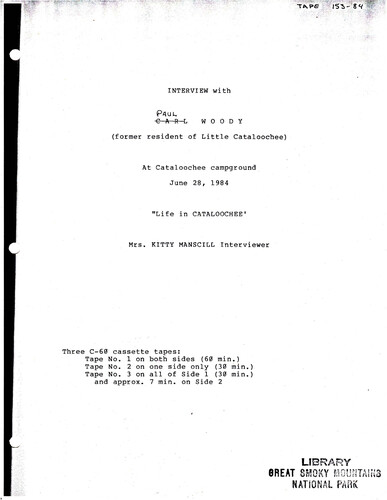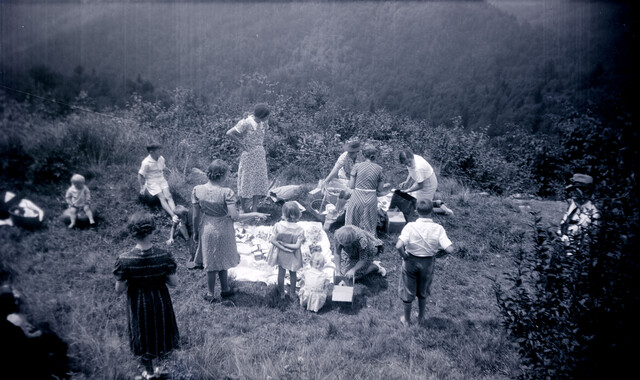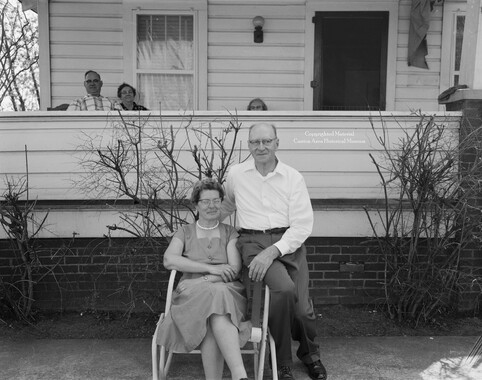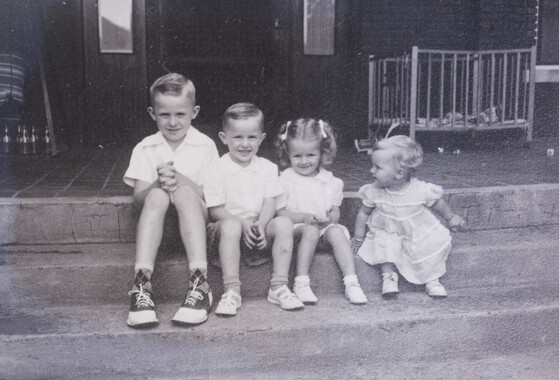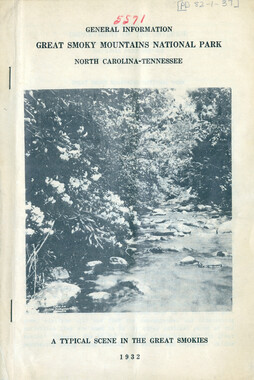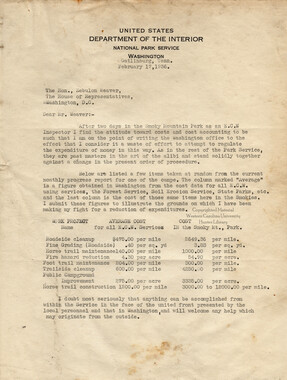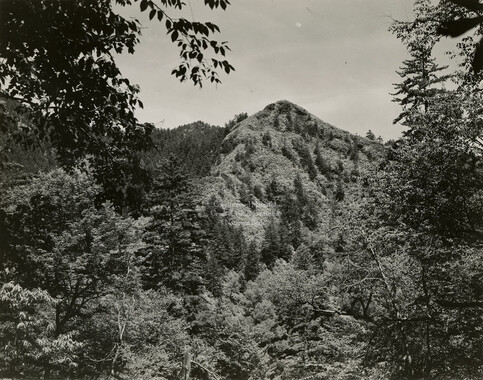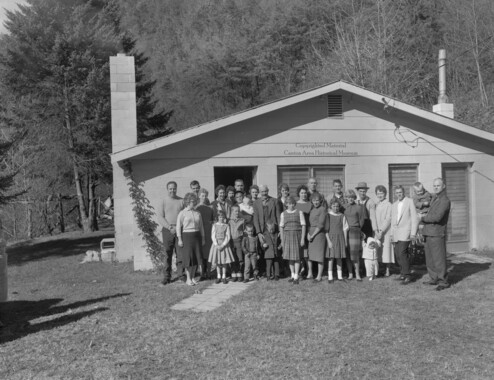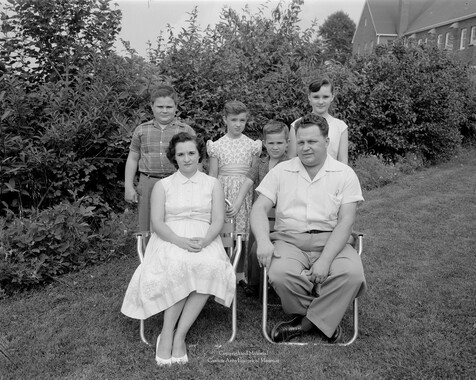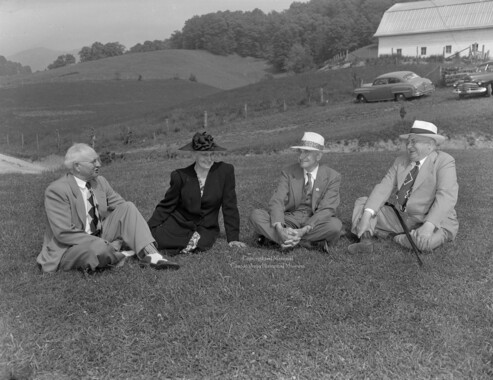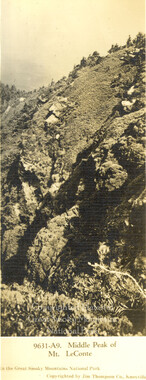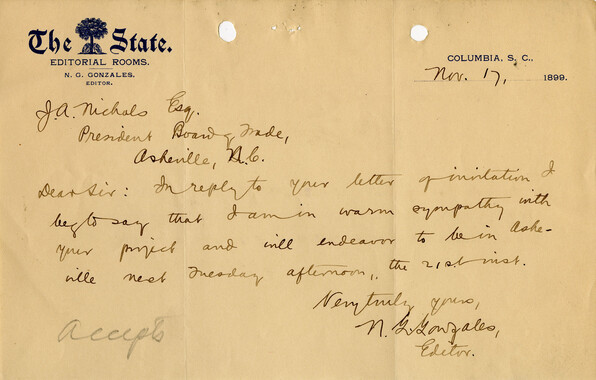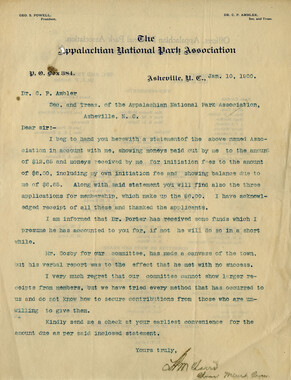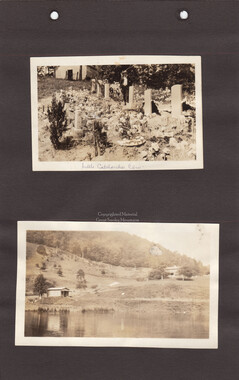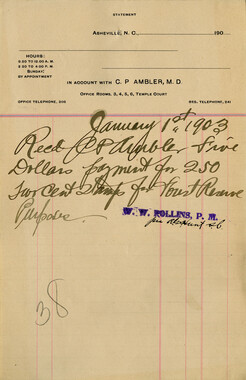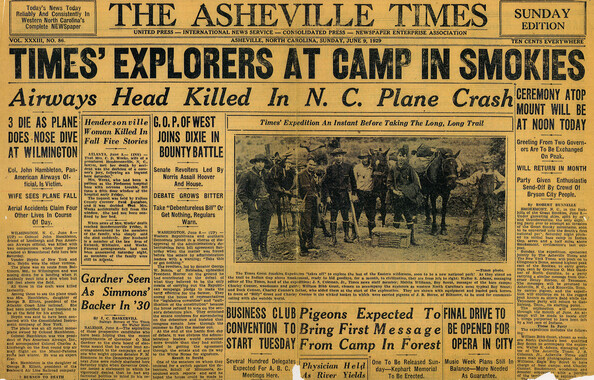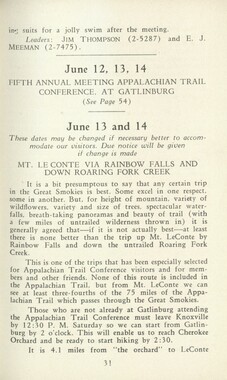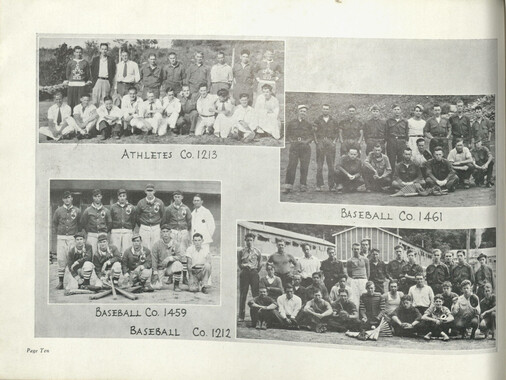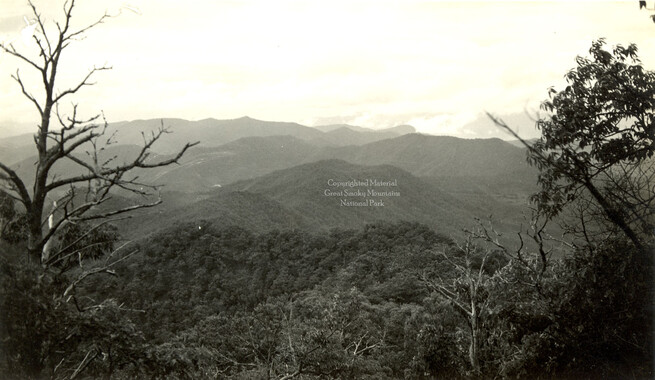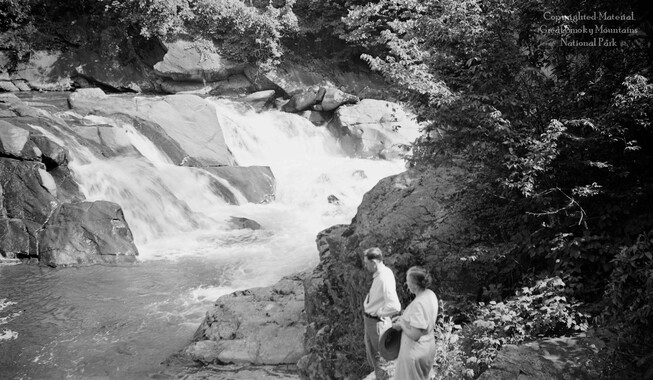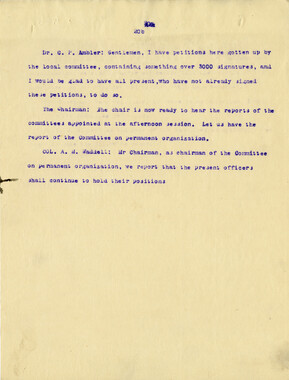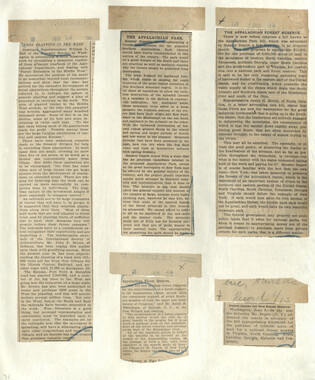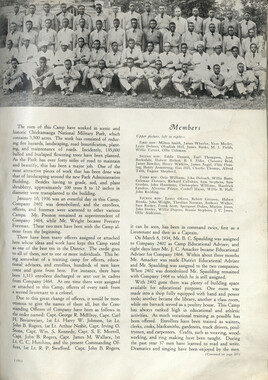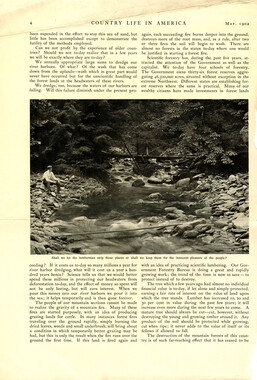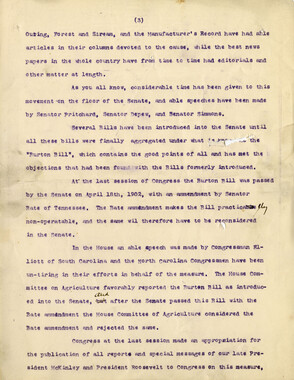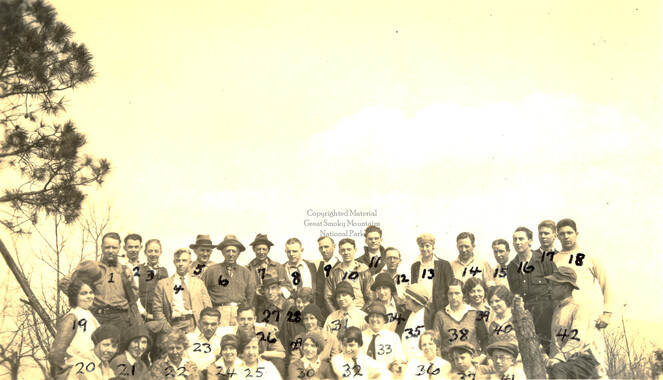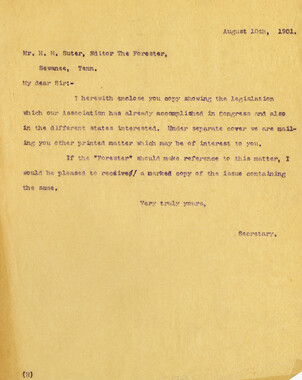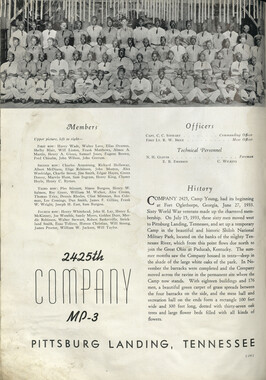Western Carolina University (7)
View all
- Civil War in Southern Appalachia (1)
- Craft Revival (18)
- Great Smoky Mountains - A Park for America (46)
- LGBTQIA+ Archive of Jackson County (5)
- Oral Histories of Western North Carolina (216)
- Picturing Appalachia (5)
- Western Carolina University: Making Memories (3)
- Canton Champion Fibre Company (0)
- Cherokee Traditions (0)
- Highlights from Western Carolina University (0)
- Horace Kephart (0)
- Journeys Through Jackson (0)
- Stories of Mountain Folk (0)
- Travel Western North Carolina (0)
- Western Carolina University Fine Art Museum Vitreograph Collection (0)
- Western Carolina University Herbarium (0)
- Western Carolina University Publications (0)
- Western Carolina University Restricted Electronic Theses and Dissertations (0)
- Western North Carolina Regional Maps (0)
- World War II in Southern Appalachia (0)
University of North Carolina Asheville (0)
View all
- Faces of Asheville (0)
- Forestry in Western North Carolina (0)
- Grove Park Inn Photograph Collection (0)
- Isaiah Rice Photograph Collection (0)
- Morse Family Chimney Rock Park Collection (0)
- Picturing Asheville and Western North Carolina (0)
- Appalachian National Park Association (3)
- Southern Highland Handicraft Guild (5)
- Allanstand Cottage Industries (0)
- Bennett, Kelly, 1890-1974 (0)
- Berry, Walter (0)
- Brasstown Carvers (0)
- Cain, Doreyl Ammons (0)
- Carver, George Washington, 1864?-1943 (0)
- Cathey, Joseph, 1803-1874 (0)
- Champion Fibre Company (0)
- Champion Paper and Fibre Company (0)
- Cherokee Indian Fair Association (0)
- Cherokee Language Program (0)
- Crittenden, Lorraine (0)
- Crowe, Amanda (0)
- Edmonston, Thomas Benton, 1842-1907 (0)
- Ensley, A. L. (Abraham Lincoln), 1865-1948 (0)
- Fromer, Irving Rhodes, 1913-1994 (0)
- George Butz (BFS 1907) (0)
- Goodrich, Frances Louisa (0)
- Grant, George Alexander, 1891-1964 (0)
- Heard, Marian Gladys (0)
- Kephart, Calvin, 1883-1969 (0)
- Kephart, Horace, 1862-1931 (0)
- Kephart, Laura, 1862-1954 (0)
- Laney, Gideon Thomas, 1889-1976 (0)
- Masa, George, 1881-1933 (0)
- McElhinney, William Julian, 1896-1953 (0)
- Niggli, Josephina, 1910-1983 (0)
- North Carolina Park Commission (0)
- Osborne, Kezia Stradley (0)
- Owens, Samuel Robert, 1918-1995 (0)
- Penland Weavers and Potters (0)
- Rhodes, Judy (0)
- Roberts, Vivienne (0)
- Roth, Albert, 1890-1974 (0)
- Schenck, Carl Alwin, 1868-1955 (0)
- Sherrill's Photography Studio (0)
- Smith, Edward Clark (0)
- Southern Highlanders, Inc. (0)
- Stalcup, Jesse Bryson (0)
- Stearns, I. K. (0)
- Thompson, James Edward, 1880-1976 (0)
- United States. Indian Arts and Crafts Board (0)
- USFS (0)
- Vance, Zebulon Baird, 1830-1894 (0)
- Weaver, Zebulon, 1872-1948 (0)
- Western Carolina College (0)
- Western Carolina Teachers College (0)
- Western Carolina University (0)
- Western Carolina University. Mountain Heritage Center (0)
- Whitman, Walt, 1819-1892 (0)
- Wilburn, Hiram Coleman, 1880-1967 (0)
- Williams, Isadora (0)
- 1700s (1)
- 1830s (1)
- 1840s (1)
- 1850s (1)
- 1860s (1)
- 1890s (2)
- 1900s (31)
- 1910s (3)
- 1920s (6)
- 1930s (9)
- 1940s (17)
- 1950s (25)
- 1960s (52)
- 1970s (45)
- 1980s (33)
- 1990s (22)
- 2000s (35)
- 2010s (48)
- 2020s (21)
- 1600s (0)
- 1800s (0)
- 1810s (0)
- 1820s (0)
- 1870s (0)
- 1880s (0)
- Appalachian Region, Southern (44)
- Asheville (N.C.) (8)
- Avery County (N.C.) (1)
- Buncombe County (N.C.) (50)
- Cherokee County (N.C.) (14)
- Clay County (N.C.) (3)
- Graham County (N.C.) (2)
- Great Smoky Mountains National Park (N.C. and Tenn.) (2)
- Haywood County (N.C.) (37)
- Henderson County (N.C.) (3)
- Jackson County (N.C.) (125)
- Knox County (Tenn.) (1)
- Macon County (N.C.) (15)
- Madison County (N.C.) (5)
- McDowell County (N.C.) (1)
- Mitchell County (N.C.) (5)
- Polk County (N.C.) (2)
- Qualla Boundary (8)
- Rutherford County (N.C.) (1)
- Swain County (N.C.) (24)
- Watauga County (N.C.) (3)
- Waynesville (N.C.) (1)
- Yancey County (N.C.) (3)
- Blount County (Tenn.) (0)
- Knoxville (Tenn.) (0)
- Lake Santeetlah (N.C.) (0)
- Transylvania County (N.C.) (0)
- Clippings (information Artifacts) (1)
- Interviews (274)
- Letters (correspondence) (3)
- Manuscripts (documents) (7)
- Personal Narratives (2)
- Photographs (18)
- Questionnaires (3)
- Sound Recordings (255)
- Transcripts (322)
- Video Recordings (physical Artifacts) (5)
- Aerial Photographs (0)
- Aerial Views (0)
- Albums (books) (0)
- Articles (0)
- Artifacts (object Genre) (0)
- Biography (general Genre) (0)
- Cards (information Artifacts) (0)
- Crafts (art Genres) (0)
- Depictions (visual Works) (0)
- Design Drawings (0)
- Drawings (visual Works) (0)
- Envelopes (0)
- Facsimiles (reproductions) (0)
- Fiction (general Genre) (0)
- Financial Records (0)
- Fliers (printed Matter) (0)
- Glass Plate Negatives (0)
- Guidebooks (0)
- Internegatives (0)
- Land Surveys (0)
- Maps (documents) (0)
- Memorandums (0)
- Minutes (administrative Records) (0)
- Negatives (photographs) (0)
- Newsletters (0)
- Newspapers (0)
- Occupation Currency (0)
- Paintings (visual Works) (0)
- Pen And Ink Drawings (0)
- Periodicals (0)
- Plans (maps) (0)
- Poetry (0)
- Portraits (0)
- Postcards (0)
- Programs (documents) (0)
- Publications (documents) (0)
- Scrapbooks (0)
- Sheet Music (0)
- Slides (photographs) (0)
- Specimens (0)
- Speeches (documents) (0)
- Text Messages (0)
- Tintypes (photographs) (0)
- Vitreographs (0)
- Appalachian National Park Association Records (21)
- Cataloochee History Project (10)
- George Masa Collection (4)
- Horace Kephart Collection (3)
- Love Family Papers (1)
- WCU Gender and Sexuality Oral History Project (32)
- WCU Mountain Heritage Center Oral Histories (20)
- WCU Oral History Collection - Mountain People, Mountain Lives (47)
- Western North Carolina Tomorrow Black Oral History Project (64)
- A.L. Ensley Collection (0)
- Appalachian Industrial School Records (0)
- Axley-Meroney Collection (0)
- Bayard Wootten Photograph Collection (0)
- Bethel Rural Community Organization Collection (0)
- Blumer Collection (0)
- C.W. Slagle Collection (0)
- Canton Area Historical Museum (0)
- Carlos C. Campbell Collection (0)
- Cherokee Studies Collection (0)
- Daisy Dame Photograph Album (0)
- Daniel Boone VI Collection (0)
- Doris Ulmann Photograph Collection (0)
- Elizabeth H. Lasley Collection (0)
- Elizabeth Woolworth Szold Fleharty Collection (0)
- Frank Fry Collection (0)
- Gideon Laney Collection (0)
- Hazel Scarborough Collection (0)
- Hiram C. Wilburn Papers (0)
- Historic Photographs Collection (0)
- Humbard Collection (0)
- Hunter and Weaver Families Collection (0)
- I. D. Blumenthal Collection (0)
- Isadora Williams Collection (0)
- Jesse Bryson Stalcup Collection (0)
- Jim Thompson Collection (0)
- John B. Battle Collection (0)
- John C. Campbell Folk School Records (0)
- John Parris Collection (0)
- Judaculla Rock project (0)
- Kelly Bennett Collection (0)
- Major Wiley Parris Civil War Letters (0)
- Map Collection (0)
- McFee-Misemer Civil War Letters (0)
- Mountain Heritage Center Collection (0)
- Norburn - Robertson - Thomson Families Collection (0)
- Pauline Hood Collection (0)
- Pre-Guild Collection (0)
- Qualla Arts and Crafts Mutual Collection (0)
- R.A. Romanes Collection (0)
- Rosser H. Taylor Collection (0)
- Samuel Robert Owens Collection (0)
- Sara Madison Collection (0)
- Sherrill Studio Photo Collection (0)
- Smoky Mountains Hiking Club Collection (0)
- Stories of Mountain Folk - Radio Programs (0)
- The Reporter, Western Carolina University (0)
- Venoy and Elizabeth Reed Collection (0)
- WCU Students Newspapers Collection (0)
- William Williams Stringfield Collection (0)
- Zebulon Weaver Collection (0)
- African Americans (85)
- Artisans (19)
- Cherokee pottery (1)
- Cherokee women (4)
- Church buildings (1)
- College student newspapers and periodicals (2)
- Education (2)
- Floods (12)
- Folk music (2)
- Forest conservation (1)
- Forests and forestry (2)
- Gender nonconformity (4)
- Great Smoky Mountains National Park (N.C. and Tenn.) (5)
- Maps (1)
- Mines and mineral resources (2)
- Rural electrification -- North Carolina, Western (2)
- School integration -- Southern States (2)
- Segregation -- North Carolina, Western (4)
- Slavery (4)
- Sports (2)
- Storytelling (4)
- Weaving -- Appalachian Region, Southern (3)
- Wood-carving -- Appalachian Region, Southern (3)
- World War, 1939-1945 (2)
- Appalachian Trail (0)
- Cherokee art (0)
- Cherokee artists -- North Carolina (0)
- Cherokee language (0)
- Civilian Conservation Corps (U.S.) (0)
- Dams (0)
- Dance (0)
- Forced removal, 1813-1903 (0)
- Hunting (0)
- Landscape photography (0)
- Logging (0)
- North Carolina -- Maps (0)
- Paper industry (0)
- Postcards (0)
- Pottery (0)
- Railroad trains (0)
- Waterfalls -- Great Smoky Mountains (N.C. and Tenn.) (0)
Interview with Paul Woody about Little Cataloochee
-
This 85-page manuscript is titled “Interview with Paul Woody.” The 1984 interview is recalls life in Little Cataloochee. The history was collected as part of the Cataloochee History Project that collected photographs, stories, and oral histories about families who lived in the Cataloochee Valley. Today’s Cataloochee Valley is within the Great Smoky Mountains National Park. While, in general, the Great Smoky Mountains region was sparsely populated, the Cataloochee Valley remained an exception. By 1900, the population of Cataloochee had grown to 1,000 residents living in hundreds of log and frame homes.
-
-
INTERVIEW with p,qul-. C A R L W 0 0 D Y (former resident of Little Cataloochee) At Cataloochee campground June 28, 1984 "Life in CATALOOCHEE' Mrs. KITTY MA~SCILL Interviewer Three C-60' cassette tapes: Tape No. 1 on both sides (60 min.) Tape No. 2 on one side only (30 ~in.) Tape No. 3 on all of Side 1 (30 min.) and approx. 7 min. on Side 2 NATiON~~L PARK CARL WOODY K-E-Y This transcript has been written verbatim et literatum as much as possible. There has been NO editing whatsoever. Phonetic spelling is used occasionally in an attempt to make it "read" through the eye like it "sounds" through the ear. Punctuation is used to indicate the flow of speech rather than according to the rules of English composition. The comma is used where the speaker paused; the period where he stopped; and where there is no punctuation the speaker continued without pausing or stopping. The symbol /-----/ indicates that the transcriber could not understand what was said. \J CARL WOODY an' 'bout 'cause chimley (space) 'd deadenin' 'em ever'body ever'thing ever'where faller gonna 'gin heered holler meader 'n' 'nether 'round (space) 's sal let sang shuck sody G-L-0-S-S-A-R-Y (or "Typography") - and - about - because - Chimney - would; had - a place where the trees were dead either ---- - - - -- - -- - - - -- - from natural causes or from girdling by man to kill them them everybody everything everywhere follow going to by the time heard hollow meadow and another around was; is; has salad ginseng shook soda CARL WOODY t' th' they they 's tuk to - the ,.·,_, "there"~ not necessarily bad grammar but "there" drawled out so as not to pronounce the "re" ~ there was; there is; not necessarily bad English, but the "there" is said so fast as to sound like "they~" this is very commonly done - took Bee hunting Bennett, George Borrowing money Bugging the beans Building construction C 0 N T E N T S Chimney at Little Cataloochee Jarvis Palmer barn Caldwell Fork Caldwell, Hub Caldwell, Jarvis Camping Cattle raising Use of dog (feist) Cattle, price for Chestnuts Christmas present Church Singing Conservation Deadening trees Dependability Diseases: Consumption Dysentery Measles Pneumonia Family members Children Farming: Corn Haying Little Cataloochee Potatoes Fence building Fish: Little Cataloochee Big Cataloochee Fodder 31, 32-33 13, 68 68, 68-70 48 19 9-10 73 9 9 50 11, 22-24 22 42 21, 39 35 58-60 59 46 67 69 63-64 64 61, 62 61-62 17, 36 53 33-34, 47 28-29 28 et seq 29 66 39 9 46-47 '--...../ \ '-..___/ Foodstuffs: Beef Bread Fish Fruit: Apples Indian peach Hog meat Home grown Wild meat Franklin, Hobart Garbage disposal Garden crops Grazing land Gritted bread (roastin ear bread) Hannah, Aunt Fanny (Mrs. Mack) Hannah, Aunt Melissa (Mrs. Jim) Hannah, Charley Hannah, Jim Hannah, Mack Hannah, Mark Harrell, Jim Hog slop Home remedies Hound pups in payment for land House or land: at Little Cataloochee at Little East Fork Income: from digging herbs from selling eggs from potato crop from tobacco Land purchasing Land titles Leaving the park Marketing pigs Measles Messer, Will Midwifery Money, value of Neighborliness New shoes 1, 31, 15, 59, 72, 12, 13, 17, 30, 34, 11, 29, 23, 24, 58, 38 21' 49 9' 39 43 43 21 21 39 17 46 47-48 23 49 15, 16 31 13 32-33 15 73, 76 40-41 46 62-63 13 19-20 18, 35 38 30 29 16 12, 13 12-13 33 40-41 61, 62 43, 69 15 41, 42 63, 66 30-31 Palmer, Jarvis Parents Marriage of Deaths Paying for land Poplar trees "Potato biscuits" Preachers Preserving food: Burying Canning Drying Sausage Property owners free of debt Radio, first Ramps Ranger at Cataloochee Reaction to park Good thing the park came Revivals Sapping the boards School: Little Cataloochee Attending revival Learning A B C's Sewing machine Share cropping Signs of the moon Smith, Dick Stills (whiskey making) Busting up Store in Little Cataloochee Store products Surveyor's accident Thieve, Brenda (his daughter) Tonsils Transportation: Sled Wagon Wagon and mules Turkey drives , . 1, 12, 6, 4 5. ,, .. 9 7, 52 52 52 14, 36 76, 77 51 58-59 48 20, 51 48 22 58 71-72 11 73-74 25 26 6, 60 10 26 59 59=60 31 15 66-67 19 53, 57 54-55 30 41 45 3, 75 70 17, 29 20 33 42 \........_/' CARL WOODY Wages for building chimney Wine making "Woman's work" Woody, Tine Woody, original ones in Cataloochee 10 19 56-57 34 13 8-9 CARL WOODY , ,;; TAPE No. 1 of 3 Pctu\ W - C-&ft Woody M - Mrs. Kitty Manscill, Interviewer SIDE 1 w: Do you have any questions that you M: Probably w: ~hat you'd like to ask me? M: I thought I'd, I have to w: Take that chair. M: Well this is all right. Today is June 28. I'm in Cataloochee. This is Kitty Manscill and I've come to meet Paul Woody, who was born and raised in Little Cataloochee. I guess the first thing Mr. Woody is which Woody are you? w: I'm Carl Woody. M: Carl Woody? w: Yes Mam. M: Arid your mother was? w: Lou White. And she was raised on Mt. Sterling. And my daddy, he was raised right around the curve here. M: Oh. Not over in Little Cataloochee. W: No Mam but when he moved see he bought this place on Little Cataloochee after him and mother married. And that's where I was born. And Mark Hannah's mother was, I'll say, my doctor. 1 WOODY ·.., .. M: She was, she was the doc- the midwife. W: Yes Mam. M: When you were born. W: She stayed for about eight or nine days and when she got ready to leave Daddy asked her how much he owed her and, she was easy talking woman, and she said about two dollars. M: That's two that's all you're worth is two dollars. Course that was a good, that was, two dollars at that time wasn't what two dollars is now. HOTE; During this recording there was a chain saw in the background and it greatly interfered with the recording. W: No Mam but see people lived for each other most all the time /-----/ it was a matter of helping each other. Uh. The park ranger come down here yesterday and told me that you. I'm I'm/-----/ to have this interview but he told me that you you wanted to counsel with me about things that I remember that/-----/, my daddy told me. So I begin to wonder if, what your starting point would be, where you would want me to start /-----/ M: Well. We just wanted you to sit down with us and try to remember where you, where you lived, what you did when you were a little boy, what kinds of crops you all 2 ~· CARL WOODY raised. How, one person asked me how far, ask him how far from his house was it to the deep woods. W: Oh, it wasn't much more than, oh six or seven hundred yards. What it was, you went up a rough road and. Pardon me for asking you this but are you from Gatlinburg? M: I live around there but I wasn't raised there. w: Well. I'll tell you this before we start the interview. I was laying one night. We didn't have any picture of the old homeplace and my daughter had been down to Gatlinburg and she 'd, they they'd been awful nice to her. M: What's her name? w: Brenda Thieve. M: I remember her. She came and looked at some of the pictures, and we couldn't find the right building. W: But she got a book that was real interesting, to me, because it went into the details of the way the older settlers lived. Now there's one picture in there, I can't remember the name of the book. Seem like it was Smoky Mountain M: Was it Highland Homeland? With a green cover? W: No Mam it was. I usually bring my books with me because I run into people /-----/ But what I wanted to remind you there's a picture it says, the numbers is in the back and, the numbers is the picture is numbered then you 3 CARL WOODY look in the back in reference to where the picture was made. But it's a mistake and I'd like to, tell you that. I have a photostatic copy of the Messer place which would've been the heart, center of Little Catalooch. Then this picture was made from the cemetery on Little Catalooch looking in the other half of Little Catalooch and, the Bald Gap's here then the Davidson Gap's here and you can see my aunt's house from the cemetery. So I believe that it's labeled that it's in the Hartford area but really it is, it is in Little Catalooch area. M: Really it's in Little Cataloochee. w: It might be confusing to someone. M: Well sure. We want to correct that. w: That would be, as well as I can remember it's the, maybe the first number, maybe the first or second number, at least it's in the front of the. And I'll tell you what I done. I don't know if I've if I've violated the rules of that little book that she bought, I believe it was two dollars and something that she paid for it. But I made a picture of this picture from a camera and I hope I've not violated any rules M: No. No. W: Because I wanted, that picture to put in my Cataloochee book. M: You you've got a collection of? 4 ! '-------' CARL WOODY w: Yes Mam. w: Cataloochee stuff you've put in a book? w: I I've put it together. M: Goodness, I wish we could see that. w: I wish I had brought that picture with me. I started to tell you. I I sat down and made me a sketch of the old homeplace just like I remembered it. And my boy took me to an artist that colors, water, in, I forget the name of the coloring she said you can take a damp rag and wash this off. Anyway. I sat down with her on the couch and just pointed out to her where all the little springs race was, the places where I'd played, and the peach trees and the apple trees an'. You'd just be surprised what she come up with and I'm real proud. M: And she she painted you a picture of it. W: Yes Mam M: Well I know you're proud of it. So. And it looks just like you remember? W: Just like I remember it. So I got that one fixed. The others, I had to have eight of 'em fixed. You know. They wanted, they wanted them one. So I give my three my two daughters and my son one and, I knowed it didn't have the, the meaning to 'em that it would if I could take 'em back there and orient 'em you know, go around and point out specific places. 5 CARL WOODY M: Have you ever taken 'em back into Cataloochee? w: Yes Mam. The ranger up here was real nice to me. He went and unlocked the gate and let me take the truck in there. M: And you didn't have any trouble fording the streams w: No Mam. We took a small. But. I don't know, I don't know hardly where to begin. If you wanted to take a recording, you more or less want the history of my, my share of it. M: Yeah. What, what you know and what your family did and you've already said that your father was from here in Cataloochee your mother was from over in Mt. Sterling. w: Yes Mam. She was a White. M: And I know, I know that people traveled back and forth quite frequently. w: Well. This was a Methodist church up here and that was a Baptist on Cataloochee and. Here in the fall of the year they always had a revival you know. And the Methodists would walk across the mountain over to Little Cataloochee. They they never had no night services. It was always the morning service. And. During the revival they'd walk across, then after church they'd go home with someone and eat dinner then that evening they'd walk back over here to Big Catalooch. And. It worked vice versa. When the 6 CARL WOODY Methodists started their revival the Baptists walked over here. M: So they traded back and forth. w: Back and forth. That's the way people lived when, in in my day of coming up. Course it's it's quite a difference today. But. I guess I ought to just bagin, and. Relate to you some stories of Daddy's experiences in life cause he was raised poor and M: Was he born in Cataloochee too? w: Yes Mam. He was born M: When did the first Woodys come to Cataloochee do you ·- know? w: No Mam but I can tell you what he told me about how the Woodys got here. They come from Spring Creek, if you'd like to start there. M: That's probably the best place to start. W: I wondered after the ranger come down here yesterday and told me that you wanted to interview me I wondered what kind of questions you would like to know. And. I studied this last night /-----/. What, what you would want to know. Now I know more about my own generation that M: Well sure that, you know about your grandparents but if if you have things that have been told you by your father or your mother or your grandparents you would start with the things as far back as you know. 7 CARL WOODY w: 01< I '11 start with M: And I wish those people would take their chain saw and go away. w: Well we could go in my trailer here. M: Well. They'll probably stop pretty soon or go on to the next w: Well I'll start with Spring Creek. M: Yeah with Spring Creek will be fine. w: Well. I'll get up a little closer so that ~aybe the microphone will pick it up a little closer. Now my daddy has told me that the generation of the Woodys started from Spring Creek. What happened. There was a Plemmons lady over there whose husband died and she had eight children. And there was a Woody man whose wife died and he had nine children. And. They moved up from, after they married and moved from Spring Creek to a two-story log house just across the river, just beyond the barn on up at the Caldwell's house there. M: Oh. Right up here. W: Yes Mam. M: Out in that flat area? W: In the flat area. And so they they brought the two families together and M: They would have to have a big house for that many kids. 8 CARL WOODY . w: They brought 'em up in that two-story house. Now. One of them children was my daddy's grandma. And he told me that two of the boys, two of the Woody boys, married two of the Plemmon girls. After having been raised up together. And they had homes of their own. And children of their own. And. They always got along good, they never had any, in other words there was no separations of any kind. My daddy, my grandma, his grandma brought him up because of, well his mother, she's buried up here his mother is. M: In the cemetery that's up on the hill. w: On the hill. And. He, he worked and supported his grandma and lived with her and he said that he'd go out to build, he'd go out to the creek, back then they 's plenty of fish you know and, while she was building the fire in the cookstove, why he'd step out to the creek and catch five or six fish you know. M: For their dinner. W: For their dinner. They was real fresh, take 'em back to the house and fry 'em. But. He growed up working for Jarvis Caldwell. He growed up working for Hub Caldwll. And this Jarvis Palmer barn down here. M: The big one W: The big one. He helped cut the logs right up here on this ridge above the campground. It's yellow pine. And they rolled 'em down here to the road bank and, he said 9 CARL WOODY that they had to put kerosene oil on their saw because of the skurn you know that would get it. M: On the pine knots w: Yes Mam. And make it easier to pull. And they rolled 'em on, on, Jarvis Palmer's wagon and hauled 'ern up here to a place just this side of the chapel up there, and sawed 'em on a sawmill. And. Then I'd like to relate this to you. That he was culling the boards of course you know and they was a portion of the boards that had to be hewed off with a axe because it was the white part it would decay a lot quicker than the heart part. And. He said that he hewed this. They called it sapping the boards. And. He hewed the sap off of the boards and the old man Buchanan made the boards, to cover that barn with down there. Well then I'm going on from tell you some more stories that he related to me. He said they was putting up hay up here in these bottoms one day. And it come a shower of rain and, they said they worked in the hay and said he saw this big brier patch out from him there in the meader. And Jarvis Palmer was paying him five cents an hour which would be fifty cents a day for ten hours. And he saw this big brier patch and he said he figgered he could cut that brier patch in an hour so if he could get Jarvis to consent to paying him ten cents to cut that brier patch he'd be doubling his wages. So he said to Jarvis he said "I'll cut this brier 10 CARL WOODY patch for you for ten cents." And he said Jarvis Jarvis Palmer studied a few minutes said "Carl I just can't do it." And. So he said as far as he knowed the brier patch was never cut. But now I know ten cents don't sound like it was much but when you consider cattle was bringing a cent and a half three quarter cent a pound and. We raised all of our hogs in th' woods. We raised our cattle in th' woods. We took 'em out in early spring, usually by the 15th of April so that they could get into them ramp patches you know back in the in the mountains. M: Oh and the cows like to eat ramps w: Yes Mam. And he said when you'd go to salt 'em that you just couldn't hardly stay in the holler where they was at you know. M: They smell it acts on cows like it does on people. W: Yes it does. So. He got enough ahead to get him a little horse. And you know a horse back then was equal to a, I suppose that's your car there, equal to something like that you know it was real sensitive with your horse. Well he kept it a few years an' course he had to go to service, that was World War One. And he sold his horse. And, he put that with what little savings that he had accumulated up through the years. ~nd. When after he went and spent his time in service, then he come back home and him and Mother met and course they married and moved in on 11 .;'CARL WOODY Little Catalooch. And he went to the old man Will Messer, he found this place for sale, which was $900 for a fiftyacre tract. Now then I'm gonna tell you the history of that place. M: You mean Will Messer's w: No Mam. M: Oh the nine hundred acres. w: Of the fifty-acre tract. M: The nine hundred dollars yeah, w: The nine hundred dollars. He knowed Mr. Messer was a business like man and he was capable of givimg advice so he went to Mr. Messer and he told him said "this fiftyacre tract of land up here is for sale. And I'd like for you to advise me if it's too much." And Mr. Messer asked him how much it was and he said "it's nine hundred dollars" and Mr. Messer said "that's just too much Carl" says "I wouldn't I wouldn't pay that much for it." But Daddy said he had never owned a home. And he said "I wanted a home so bad." He said he overruled the judgment of Mr. Messer and went ahead and bought it. And he paid seven hundred dollars down on it. And. Now I'm going to pause here and go back to what I wanted to tell you to begin with. It's hard to keep this lined up. But to begin with the Loves owned and heirs owned all of this whole territory. And at one time they'd sell you a acre of land or a boundary of land for 12 CARL WOODY just anything that you that you would give 'em for it. So that they could write you out a deed for it. Well they told old man Tine Woody, now that was Jonathan, banker Jonathan woody's, daddy's brother. M: Yeah. His name was Valentine, I think and they called him Tine. w: They called him Tine, yes Mam. Well. They told him that if he would raise 'em two hound pups and bring them out to Waynesville, that they would deed him that fifty-acre tract of land. M: This was the Loves told him that. W: The Loves told him that. Well. He come back home and course it tuk process of time you know to raise two hound pups, and when they got old enough to wean, take off of their mother he loaded 'em old courthouse in Waynesville. that fifty-acre tract of land. in a wagon and took •em to the They made him a deed for And. So. The old man Tine Woody sold it to Charley Hannah. And then Charley Hannah sold it to a Sutton. And I've got the deeds in there in my camper. The Suttons give $600 for it and he sold it to Daddy for $900, with a pile of lumber laying on it that Daddy used to build him a new house of. Well. Now then I'm going back and tell you how he paid for it. He paid $700 down on it. And he got George Bennett, Mama's first cousin, to, well he got his crop planted and then he got Mama's 13 CARL WOODY first cousin to come and plow the corn and potatoes and the garden and all. And she made the crop, while he went back on the Lufty job back yonder and worked on the logging job back yonder and worked on the logging M: For the lumber company w: Log- yeah lumber company. And he stayed all summer long until late that fall until he worked out that $2@0 And he caught a log train and come to Waynesville where the deed was at, and he paid it off and walked from Waynesville into Little Catalooch, and they was an old house I guess that's as far back now as I can remember, I remember the old house. And he got up on the porch and could see out down through there and he said to me several times, he said "son you just don't know how good I felt for the first time I was sitting on my own porch." M: And he owned it fully paid for. W: All paid for, M: That was, that was an accomplishment because lots of people never do. W: He he had never owned a home. And see he'd been a tenant and this is the thing that made him appreciate it I suppose so much was, that he had worked it out himself. And then he he had to be a share cropper because he lived on the other man's property. He had to gather the corn, he hauled it out to the edge of the field, piled it up in two 14 CARL WOODY piles, _and the landlord come by and made his choice of which pile M: And he took that one and that left the other w: That left the other. M: So it was on halves. w: On halves. M: Is this Mrs. Woody? w: Yes Mam. I didn't want to M: Interrupt. w: Interrupt the recording so I didn't M: And are you from Cataloochee too? Mrs. w: No Man. No Mam. M: Well now am I out of line if I ask you when you were born. W: I was born December 6, 1921. M: And were you their first child? W: I was the first child. And do you want that put in there I'll put about M: OK. W: Daddy went, when it was time, he, he went to, Uncle Mack Hannah's, that was Mark's daddy. M: That was Mark Hannah's father. W: Yes Mam. And, of course Aunt Fannie, we all called her Aunt Fannie. She wasn't any kin to us but, that's the way we thought of her. 15 CARL M: Yeah lots of times you called people aunt and uncle and when they weren't kin to you at all. w: And he told Uncle Mack what he wanted. And Aunt Fannie had a big red horse, a blazed white faced horse, that she rode to all of these midwife occasions you know. And so Uncle Mack he went and saddled her horse up for her, brought it to the steps, and she had her a little satchel you know that she carried. And Daddy said Uncle Mack said "hurry Fannie hurry." And so she went with Daddy, now this went on with ever'body. She went with Daddy to our house and. Course she stayed eight or nine days I don't remember the exact amount of days, but there was cooking to do and there was washing to do and there was the baby to tend to you know. And. Course after she stayed eight or nine days why Mama she was up and ready to take care of me and herself. And Daddy asked her how much that she charged. And she said as I told you a while ago, in that soft voice, "about two dollars." And, course she went on her way, and as the old saying is I I growed up and done well. You'll have to pardon me sometimes I get a little emotional. M: Well you can't help but. You start thinking about things that aren't any more and when you're when you look at a, come back to a place where you were born and raised and you're not there any more you can't help but get enotional about it. 16 CARL WOODY w: Well. After that I had. Daddy. I've got a brother named Clay, he's next, and then I've got a twin sister and brother that come along after that. They were, Daddy brought Mother out to Waynesville then by then, the midwife begin to you know kinda play out. And he brought her out to Waynesville and, after they were born, he, got Will Messer to bring 'em back to the Messer barn over there at Little Cataloochee couldn't get a truck or a car to our house. But I want to show you how, now Hobart Franklin I want to tell you his name before I it passes me up. He walked from what was called the Carr place, that's on the old road 284 I believe it is going towards Mt. Sterling at a iron bridge to get across. He lived down the river and someone told him that the twins, that he had a set of twins. So he walked from Carr place in on Little Catalooch to tell Daddy that they were well and that ever'thing was going along fine. Now, M: So that your daddy took them to Waynesville and then he left them there and he came back. W: He came back. And then I'll go back to where I left. The car that he hired to bring 'em in there he met 'em there with a sled and a little mule. And he put Mama and the two babies on the sled and sledded them a mile and a quarter back up the c~eek to where we lived. Now. They don't remember too much about leaving out from over there 17 \. __ / 1'--._.-/ they were still wearing their left •. M: When did you all leave? w: We left Oecember 29, 1931. M: And had the, then you were ten years old. M: Yes Mam. M: And had the park did the park buy your land or w: Yes Mam they had already bought it and we had already bought a place over here on Little East Forknear Lake Logan where, we live now. And he, Daddy give, I'll add this in there, Daddy give $3,000 for the place that he bought over here END of SIDE 1 18 ... ~ ' I "---./ CARL WOODY SIDE 2 of TAPE No. 1 of 3 w: Off the land that was stacked up air drying. He built a house, and the park give him $2,400 for M: So he came out ahead didn't he? w: Well, in a sense. M: Monetarily he was ahead. w: Yes. He keep stepping up. And now the old man that helped him build the house was a Dick Smith. And Mark Hannah tells me that there was never a road to Dick Smith's house, it was just a trail. He was, but he helped Daddy build the brick uh build the house. And. He built the chimley for a seven-dollar calf. A whole chimley, a double chimley up through the center of the house and he, he boxed the chimley in and Dick brought his boy, he made mud. You know they just dug it out of the bank, and packed it in between the rocks. And M: For chinking W: Chinking. And Daddy carried the rocks for him. But he built the house, uh the chimley, for a seven-dollar calf. I don't know how many days they put in on that, but, it had a chimley on either side of the partition so that they could have a fire M: In each room. 19 w: In each room. Now the house had a living room, it had two bedrooms and a dining room and a kitchen. M: That's the one you moved to when you moved away. w: No Mam.' M: That's the one that's in Little Cataloochee. W: Little Catalooch. And of course it was covered with boards and my Grandpa White, my mother's daddy, let him have the boards to make, they hauled them from Mt. Sterling on a wagon to cover the house with. M: Then it wasn't a log house underneath. w: No Mam. It was plank. M: Just the boards. w: It wasn't framed it was double it was what they call double boxed. Just one plank nailed right over on top of the other one on the outside. And. It had locust sills under it and. We had a spring house out from the house. And, we carried the canned stuff, Mama canned everything you know there was no refrigerator or anything. M: In those blue jars? w: In the blue jars with the zinc M: With the zinc lid. W: A rubber M: A round rubber seal went with that. w: Seal, that sealed it off. We had to carry them cans to that smokehouse, in the summer time you know and then 20 . I CARL WOODY when then 'gin it come wintertime we carry 'em and slide 'em back in under the beds. Well. Now as far as the eating part is concerned, we always had plenty to eat. I'm talking about. You you eat what you grow and you growed what you eat. If you didn't grow it you didn't have it. Now bread was our biggest, our basic part of the meal. If you had bread then you could go from there different directions. M: Did you mostly have cornbread or did you have wheat bread? w: No Mam. Fortunately we always had biscuits for breakfast. But the other two meals was cornbread. And of course in the wintertime Mama would bake this cornbread in a, in a oven, in the fireplace. And I can remember that so well w: And wasn't it good! w: It was so good, you could smell it all over the house. But Daddy 'd always kill two big hogs, and back then they was plenty of chestnuts you know. You never had to feed 'em any corn. And when he got ready to kill hogs he just drive one, I don't know for some reason or 'nother they could drive hogs then. And you could drive your cattle back into the mountains. But. See he didn't have to feed any of his corn to fatten the hogs, they was plenty of chestnuts. Uh. Then. We had that ham meat with gravy you know and hot 21 CARL WOODY biscuits. I can just remember how how good that ham meat smelled you know. M: When it was cooking. W: Being fried. And. Mama would make sausage and she would make 'em into little round balls, and pack them in a quart fruit jar. M: With the grease around them. W: With the grease around 'em. Course she'd already fried 'em you know in the frying pan. hot grease in on top of 'em. And. Then she'd pour that You could just set your fork down in 'em and a piece of it just fall over they 's so tender you know. But he had a little, a little feist that he always used to take his cattle back in the mountains with. He'd get in front and the little feist would get behind his cattle, and when one stepped out of the trail it was a nibble at the heels you know. And that little feist had learned, to not stand upright but to lay down flat when he grabbed their heel M: So they wouldn't kick it. W: So when they kicked they wouldn't hit it. And he'd take 'em back into what was called The Balsams. I don't know if that's listed on the, in the. It's actually where the fire tower is if you were going through Mt. Sterling Gap you can see the fire tower back to the left you know. It was back in behind there. 22 CARL WOODY M: Now was that a bald area? Were there trees up there or were there w: There were balsam trees and this rhododendron M: Well then what did how could the cows eat? Were there any grassy areas? W: Yes Mam. When you got off of that top and you got down into them places. Now them old people had all these places named, just like me and you would streets in town. I. I'll go on and tell you, when you got down in them hollers it was real good picking and it was wild grass that growed under them beech groves, and ramps, and weeds of various different types and. Then they'd go back in there once maybe a month and salt •em. But they was maybe four or five of •em get together you know M: And take their cattle together. W: Take •em together. And, they'd go back there and two would drop off into a little creek and catch •em some fish and a couple of •em would go and hunt cattle, and if something happened that I couldn't go and, my cattle was back there why they knowed my markings because every man marked his cattle you know by clipping out a M: Notches on their ear. W: Certain amount of their ear in a certain way, it might be a "V" shape or it might be under the bottom part of the ear or it might be on the top part. Each landowner had 23 CARL ~'700DY his own markings. So. He'd come back and told Daddy or Daddy if he went and they didn't get to go where he'd salt his cattle at and if he'd salted 'ern and, they was all all right. But they could go back there and stay for week at a time. And seemed like when they come back home they wasn't behind with their work and nothing was pushing. I just can't account for it. Now today we're all pushed you know for time. But. It was a relaxing day of life and. They went over to their neighbor's house and would set and talk with each other of a evening. 'Bout their work that they'd accomplished during the day, or what they was planning on doin'. If someone got sick, or spring of the year all the neighbors come in you know and plowed his ground for him, and repaired his fence. M: Help each other. w: Then when fall of the year come, if it took it through the summertime they come in and worked his crop for him, when fall of the year come he gathered his corn just like all the rest of 'em did because of the good neighbors that he had. M: I don't know that people would do that nowadays. w: Well. Now they might have done that in other communities, as well as Catalooch. Now I, I don't know because you see I I didn't get very far, fact of the 24 business is Waynesville is as far away as I had ever been, until we moved out of here. M: Do you remember when they how your family felt when they were going to have to move. W: Yes Mam. I was going to school and, when families would move out, their hearts was broken. And course they went ever'where. Some went to Macon County and different parts of Georgia and some to various parts of Haywood County and. It was a community that was, I call it best way I know to describe it, it was a brotherly love that you just couldn't walk away from. But. The. I suppose he was some official in the park that I talked with the other day that's probably the cause of this interview. M: Yeah. He. Yeah. w: He made a point to ask me how my daddy felt. Now my daddy he wasn't in a state of madness, but he just didn't, he just didn't want to give up. M: Well that's understandable. w: What he had and, he loved the people and the people loved him. But in his latter days when he was about eighty-one eighty-two eighty-three along in there, he said to me several times he said "you know" he said "it's a good thing that the park did buy that property" he said "here I am old man, and I'd be probably setting back up there under that balsam, couldn't get out." And then he said it's, a. 25 ., ·1 ' ''~?:1· . .. ,: .. CARL WOODY Another point that he'd thought of was. This is little on the dark side maybe, but it was really true because people didn't they just didn't get out of here. And some of 'em had begin to marry their cousins you know. And, M: It was an isolated w: Isolated area, M: Area and so and by moving out here were new opportunities to meet new people, to try new things, w: That's right. M: To see new things. w: So, now if there's any questions that you would like to ask me as I go along in relating this to you I'd be glad for you to ask me because it will probably help me to be reminded of something else that you would be interested, M: Now where did you go did you go to school here at this school or was there a school in Little Cataloochee. w: There was a school at Little Cataloochee. Actually they was two schools over there, to begin with. I never went to the first one because I wasn't old enough. The bottom part of it was, they used it for a schoolhouse and the top part of it was a Junior Hall. Now that's a M: That wa~ a two-story building. W: It was a two-story building. And. I'd like to send you the photostatic copy that I have because it shows 26 . ·.,,;,; ,.,, . . ·• . /:. -· ,;,_. ·cARL that building, it shows the Messer building, it shows the old Messer barn. M: I'd like to see that. W: I believe that you'd be interested in putting that in your files. And. Then I thought when I was down at Gatlinburg, I didn't get a chance to go down into the basement I understand M: Well that's where I, I work down in the basement there. w: You do? Well my daughter was bragging about how nice that you people was, in trying to help her find out, and to get some of these pictures. And so I plan on going down there sometime or 'nother in July. And. M: Well let me know when you're coming so that, because sometimes we have to go other places. Let me know so we can have enough people there to help you. W: Yes. What I wanted to do is, I wanted to bring you a picture of the picture that I had painted. And let you put that in file. And also I'll bring you that photostatic copy. Because I plan on coming there, it might be you see that, it's like walking in to a, a register of deeds. If you don't know what to ask for M: Then you don't know how, where to look, that's right. M: It's hard for the one who is waiting on you to go into the files. It might be that if you happen to be there that me and you could dig up something. 27 CARL WOODY M: We could maybe find something. W: That I could, that would be real interesting to put in my book that I've got at horne. But. Now let me go into a little bit of the farming business for you. Daddy, he, there wasn't much money crops. We didn't raise any tobacco. He consumed all the hay that he raised there on the place. He mowed it with a mowing scythes M: Yes, just going w: Yes Marn. It had a big long blade to it, M: With a fingers like a, was the cradle. W: Yes, it had handles on it. And what he'd do is go to the upper side of the field, they called it a swarth. He would, when he struck he would, you know bring out the hay that he cut down with it 'd be in kind of a wind M: And falling in a nice line. W: Windrow up and down the hill. Then when they got ready to bring it off of the hill of course you couldn't do, it was so steep you couldn't get a horse up there. They'd start it in a roll and the bigger you got it, unless it hung on a stump or something, it would roll almost to the lower side of the field. M: Well you know nowadays they're rolling a lot of hay, and it used to be for a while they always put it in bales but I've seen a lot now that's rolled up in a big. So they're corning back to some old things. L ' CARL WOODY ·_, ..;r w: Well. I don't know where they got the idea of that at, but, course we bale ours now. But now they tore that apart, and they cut 'em a stack pole that was about twelve foot high, with, it was sharpened on the bottom they put a hole in the ground. Then they had a stack pole that was sharpened on top, and. One man stayed on that stack pole and he laid that hay even, all the way around. And, one throwed it up to him. And then when he got to the very top of the stack they always put what was called the cap, on the stack. He punched it down over the top of that sharp pole. And. Then he'd have, the one that was on the ground to go out and cut some forked, a forked stick. That had a fork on it, that one side of th' stick was short and the other one was long enough to sharpen until it would job down in the hay and that belt the hay kept the wind from M: (Doubling) Picking it up and blowing it. W: Well he raised a potato crop one year. And, it was awful, awful good potato year. And he had to sled 'em out down to where the man, that was buying 'em. And he got my uncle, it took two days to sled 'em down there they 's seventy-five bushel of 'em. And he got $75 for that. M: Dollar a bushel. w: For that for that bunch of taters. And. I can just see him, he'd felt like he'd got rich you know. Seventy-five dollars was a whole lot of money. And of 2 29 course Mama she she done whole lot too you know, She sold eggs. Take 'em down to the store, and she got ten cents. a dozen, twelve cents a dozen, that 's 'bout high as they got. M: Was there there was a store there in Little Cataloochee where she sold 'em? W: Yes Mam. The Will Messer place he had a store M: He had a store. W: And he had a post office in there, and he had a apple house that joined the same it was all in the same building. And. She'd take her eggs down there and, if you would buy as much as a quarter's worth of small items like a box of sody, a box of salt, you could get six for a quarter. And so she'd swap her eggs for the, she'd always try to buy a quarter's worth you know so that she could get six boxes. That was a bargain you know six boxes of sody, six boxes of matches. They was a nickel. And, flour a twenty-five pound bag of flour would cost you forty-five cents. And the first pair of shoes that I can ever remember having was Polly Harry, that was the name of 'em M: Yeah I know those shoes. w: And Mama and Daddy went and dug herbs. You could sell roots you know, sang, and spignet, and, various types of roots that, just don't come to my mind right now. Anyway they took them after they got 'em dried and bought me a pair of shoes, which was two dollars and something. And I can 30 •CARL . : i ,, ~ l ~ . I remember she ordered me a pair from Sears and Roebuck one time they was three dollars, they was slippers, and boy I want you to know I was proud of them. M: You were really something. w: And. I remember I was walking out one morning going to Sunday school, I wanted to wear my new shoes you know to church. And. I met Uncle Jim Hannah. Now he's the one that lived in the log house that is on Little Catalooch now. You I suppose M: Yeah I've been to the Hannah cabin. W: Oh you've been there. Well he was a, he he was coming up the road and he told me they wasn't goin' to be any Sunday school that morning that someone in the community had died, and they wouldn't be any church. So I was real disappointed because I didn't get to wear my new shoes to church. But Uncle Jim Hannah was, he was a bee man. And M: His wife's name was Rhoda. W: Melissa. M: OK OK. Yeah now I know W: Because I remember real well we got a sewing machine that Daddy bought from 'em, it's a Sterling that's the name of it, at home now. He give Uncle Jim seven dollars for it. And I remember going with him with a sled, and we tied it on the sled and sledded it back up home. And Mama had always been used to you know the needle and thread, up 31 until she got her sewing machine boy she was tickled with that sewing machine. But Aunt Melissa, we always called her aunt too because she, was elderly person was back as far as I can remember. But Uncle Jim used to come up to home and me and him would bee hunt. And the way he'd bee hunt is, he'd go 'round the hog pen and where them bees was getting, what is called bee bread, to feed their little ones, and he'd watch 'em when they flew through a tree, open place, he'd then th' next day he'd take him a bucket lid with some honey in it and he'd set it on a post you know on a little farther, and get them bees to work it after that, then he kept watching 'em and watching 'em, maybe it'd take us a week to find a bee tree. But he always looked up into the taller trees and watch for holes in the tree where the bees would go in and out. He had a pretty sharp eye you know towards seeing them bees. And, I went with him to cut a big hemlock one day. I, it took half a day to cut it cause you know we 's using a axe. And when it fell it just bursted ever' way, M: And th' bees all went w: Bees went all different directions and he went in and I went up the hill, getting away from the bees. He went in to try to save 'em and did, he finally found M: Get the queen. 32 \ CARL WOODY W: Finally found the queen. And. Then we got some honey out of it. But when we moved out from Catalooch, of course as I told you we couldn't get a truck up there. So, my uncles that lived at Mt. Sterling they had a team of mules, they brought a wagon. And Daddy had an awful pile of pretty white corn and, I'll tell you how he growed it. It was chestnut landi they was a lot of chestnuts up there. And the ground was real black, it was the cream of it, you know, never, never been cultivated or anything, but he used this twenty percent acid fertilizer. It was put up in two hundred pound bags. Someone would bring it in to the Will Messer barn, and he had a little mule that weighed about seven hundred pounds and one bag of it is all that that little mule could pull up that creek and then it 'd go just a little ways and stop. But anyway he'd get him two bags of that. And we planted our corn. We dropped two grains in a hill. Then we'd go out here about two and a half to three foot, and we'd drop two more grains, and just about what he could hold in his finger, like that is of that fertilize what about all that went into that hill of corn. But his ears of corn was I'll M: Big ones. W: Say M: Almost a foot long huh? 33 CARL WOODY . W: Almost, eight to ten inches long. Course he had some nubbins you know, like you'd find in all corn fields. But, it it growed real good corn. And when we took it up yonder there was a real old gentleman, he knowed the community where we lived, the older settlers had wore their ground out there. And he said "well Carl Woody has got some awful pretty corn this year but he'll not have it next year. Because this ground here won't grow it like he growed it on Catalooch." Well. We went, now Mr. Will Messer he had a, he had a, he was a man that had all kinds of trades. He had a sawmill, a steam sawmill that they fired with wood, then he had one that run off of a big water wheel, inside th' barn where he ground the corn. And if it rained he kept logs pulled into the barn there, if it rained his men out, M: They had some work to do inside. w: They'd have work to do inside the barn. Now his wife, she cooked me, she cooked for all of his work hands. There was no such a thing as me carrying my lunch basket or anything. He fed his men every day that they worked, had a big long table. And it was full too of good good tasty food. But how she found time to attend to that post office and to do her washing with a washboard, and to cook that meal for them men to work M: Clean her house 34 W: Clean her house, to make beds and do all that and besides she had a big family of her own. I'll never know how they got around to doing so much. If someone got sick, they had time to go and set and do and, wash for them and carry on for their in their housework. Uh. Well. Let me go back and I'll tell you what I got for Christmas. M: OK W: The year that we moved out from over there. M: You moved in December you said, W: December the 29th in 1931. I 's thinking last night that you might want to know what I got for Christmas. I got a new pair of overhalls, and there was a string tied around one of the legs and they was five oranges down in the leg and five sticks of candy, and one of these hard sponge balls. That's what I got for Christmas. Well. I packed that, that ball along with some of my other little items you know that I wanted that I cherished, I packed that in a box and made sure that that got on th' car on on the wagon when we was leaving out from over there. But. Do you want me to tell anything about what happened after we got up yonder? M: Sure W: Well M: How you, it was a different kind of life wasn't it? w: It was, well we still farmed, but see the park had give Daddy twenty-four hundred dollars for what he had sold 35 CARL on Little Catalooch. He went to Lake Logan up there and he bought a place that had 242 acres, and he give three thousand for it. Well that left him in debt five hundred dollars. And it took him five years to pay that five hundred dollars. And right at the last it looked like that he was going to lose that property so, he sold off twenty acres on the back for four hundred dollars. Then he sold a acre on the other side, he got fifty dollars out of that. And. Then, when he sold his cattle and his tobacco, which brought anywhere from ·ten to, the top price of tobacco then was about twenty-three cents twenty- in that vicinity the the best grade. And the tips come down to 'bout ten or twelve cents. But anyway he paid that off. He said he would rather have part of it and have it paid for, know it was his. Well now I bought th' twenty acres back, I give eighteen hundred dollars for it. M: But you got the land back again then. W: I put it back together. Course. Now I own a fifth of what Daddy bought. M: You shared it with your brothers and sisters. w: No Mam. What I'm telling you is Daddy divided the land up, and I've got four brothers, I got two brothers and two sisters. They was three of us boys and two girls. So he divided the land up. I've got a fifth of what he put 36 CARL WOODY together over there on Little East Fork. And. He, as I said give three thousand END of Tape No. 1 of 3 37 TAPE No. 2 of 3 SIDE 1 NOTE: Tape No. ~~ "is on one side only M: As much as we can about people who used to live in the park. And what they did before and what they've done after and how they feel about it now. Did you, did you eat any wild food when you lived up here, did did the family ever hunt bears and eat bear meat and W: Some, some did. M: Some did. W: Some was bear hunters but Daddy never did hunt any. Now I can remember them killing a, when when they got ready to kill a beef, they always spread the news around through the community, the day that they were gonna kill the beef. So that that ever'body that wanted a, meat, meat because we didn't have no refrigerators or anything to keep it in you know. And. The day that they killed this particular beef I can remember Daddy bought some steak. And he brought it home and Mama took a saucer and she chewed it on the table. And. I thought that was the best stuff that I've ever eat you know that that was real good eatin', we got some good lean steak. Uh. And. Ever'body had to come that particular day. Well :l M: And take it home and eat it then. I W: Take it home and eat it. · ; M: Couldn't keep it. 38 .~ . w: Well fishing now. It amazes me, there was a little trout stream that run up by home. It wasn't by no means as big as Big Cataloochee here. But it was full of little speckled trout, just about that long. And maybe we would go two or three times a year and catch a mess of fish. But we didn't catch, in excess we just caught what we M: What you could use. W: What we could consume because fish was something you couldn't keep very long you know. And. Course in the fall of the year Daddy 'd hunt squirrels a lot. And Mama 'd make, she made dumplins or sometimes she would fry 'em. And I can remember the last year that the chestnuts was in here. This is an unbelievable thing, about how many chestnuts there was. It was up in the fall of the year and my grandma she was living then. And. She said "let's go and pick us up some chestnuts." So. The wind had blowed hard that night, and had shuck the burrs out of the trees you know and, they'd hit th' leaves and, would bounce in behind the logs and. And you could just almost scoop them up really where they'd lodged in behind the logs. And that fall we picked up a five-bushel oat sack full and a 100-pound, a 100-pound bag of, had had cottonsead meal in it. We picked that much many chestnuts. M: Then did you all take 'em to sell 'em or 39 W: No Mam we didn't, we didn't sell them I don't think because, they just wasn't no market for 'em. But. To show you how cheap things was I, this come to my mind since I've been talking since you mentioned selling 'em. Daddy one fall of the year he had an old sow that had eleven pigs. And. The only place that he could sell it was to drive it out of here. But can you imagine a person starting out with an old sow M: (Doubling) And eleven pigs. W: And he got a way up on the mountain up here at what was called the Windin~ Stairs. Now. That will be an area over here that will be about half way up the black top road. But the Winding Stairs heads out on that 284 I believe it is that goes through there. Well he had a aunt that lived up there at the head of what they call the Winding Stairs. And. One of the little pigs give out on him so he give the pig to, to my aunt, and he continued on with the old sow just moseying along. And he got over to Jim Harrell's store. Now that's where where you first head out, you remember there's a store on the other s J de of Cove Creek Mountains. On the left of the road. Jim was a cattle trader or, or, in other words he traded and trafficked a whole lot. So. He asked Jim what he'd give him for that old sow and pigs. And Jim looked at 'em and he said "Well" said "I tell you what I'll do Carl.'' Said "I'll give you 49 ~ - ---- J;~\1:, CARL ·.WOODY ;· ·-r:~·~_:·. . ·'-"'· .. · -~-- .:· - :-. " . ' twelve dollars for this old sow and pigs." Dad said it was -'· ,'' getting up late in the evening then, and. He said riJim" said "I can't hardly take twelve dollars for sow and these ten pigs. " And. Jim said "well that's about all I could put in it." So there was a a bridge on down just below Jim's, and so I don't know if Daddy was pulling a little bluff in his trade or what, but anyway he said he walked on down the road he said "now I don't know where I'm going, I don't know whether I' 11 even be able to sell this old sow or not. I believe I'll just take it back up there and I'll just sell it to Jim." So he did. And said he went back to Jim's, to Jim Harrell. He said "I believe I'll just sell you this sow and pigs." So Jim paid him. He got him a 25- pound bag of flour, a a, coffee was dipped out of a, M: The bins. w: The the bin then you know and. It was in bean bags. M: In beans and you had to grind it. w: Had to grind it when you got it home. So. He had his coffee. He had his, a a bag, it was put up in a paper bag then, I mean you dipped it out of a big old container, and weighed it on a set of scales. In other words he had a, paper bag full of sugar, and. He had his coffee and he had his flour. And he had a little money in his pocket you know left. And he said he got up on the mountain and he set down on the bank of the road and, he said, that he got to sitting 41 there thinking "well I'm better off than I thought I was. I've got a bag of flour, I've got my coffee, I've got my sugar, and I got some money in my pocket, that I'm taking back home that I can use for another day." Well. Twelve dollars, I I realize it wasn't much then but when you consider cattle selling for, as I said a while ago, a cent and a half, it got up to a cent and three-quarters then it got up to two cents, and the last cattle that Daddy sold I, he told me that he got a dol- he got two and a quarter cents for 'em. And the man that bought 'em, lived on Coleman Mountains. That's between Iron Duff and Cove Creek. And. He come in in the summertime and they walked to went back in to the mountains and looked the cattle over during the summertime and they contracted 'em for so much a pound. Course they 's two and a quarter cents. And. Then he was to pick 'em up that fall. Well. By fall cattle price had dropped. So he offered Daddy, uh, the, he offered to pay a certain amount of money, and I can't recall how much it was, if he would just keep the cattle, rather than to go through with the trade but Daddy told him he said "I just don't have the feed, to feed 'em through the winter. And I I have to sell 'em." So. He got them up and Daddy helped him drive 'em out from Catalooch into Coleman Mountain. They drove 'em over there and. Into his barn lot. Now they used to drive turkeys out of here too. 42 M: Yeah I've heard about that and I can't imagine driving turkeys, too, as dumb as turkeys are. W: Oh. Before my day but. Daddy said when he drove 'em out to Clyde, that's where they would load 'em on a train you know and ship 'em, somewhere. But. They'd all get together with, great droves of 'em in the road and I just can't imagine it but, that's really the way it was. Uh. When it come late in the evening, they had a wagon that follered 'em with corn and stuff you know and they'd feed 'em. They'd fly up in the trees, an' then when daylight come why they'd scare 'em out of the trees and go start on their journey again. Now I don't know the price of turkeys. I can't recall him telling me what they would bring but. They would haul apples out of here to Newport, Tennessee. M: Yeah I think Will Messer hauled a lot of apples. W: He hauled a lot of apples. M: (Doubling) Did you all have any apple trees? w: No Mam. Nothing more than just what we consumed. But we had a a Indian, what was called a Indian peach. And I'll try to describe it to you. You probably have seen one somewhere or 'nether. They didn't get very big. They wouldn't turn loose of the seed. But the inside of 'em was a, a real deep pinkish, and the juice of 'em was sweeter than some of 'em. And. Mother would can 'em whole. And. This may sound like I had an awful big appetite but you know 43 CARL WOODY how children are. I'd get hungr~, and I'd go to the can house and get me a quart of them and I'd get out in the . shade somewhere or 'nether and set down and eat that whole quart of peaches. Just gnaw 'ern off of the seed. M: Well now if you happened to have any cold biscuits left over that would go good with your peaches too. W: That would go good with your peaches. And the last time that my Daddy went up to the old horneplace, the ranger here on Catalooch, he was, he was real nice to Daddy. He realized that he was getting old. And. He went with him. And of course they walked all the way up to, the old horneplace and, they'd stop all along and. Ever' little place was named. Uh. Like, when the park was surveying all this a surveyor .slid off of the bank and his leg caught in behind a root and he pitched forward and broke his leg. So they come after Daddy at, some time up, a good deal after dark. And. Told Daddy where he was at the back of The Balsam at a specific place, which he had named, which was, Daddy knowed exactly where he was going. He went in there 1:00 o'clock in the morning. But before that, he thought now his leg's bound to be hunting so he went by a man's house which I'll not call his name, and picked up a little bottle of whiskey. And, when he got back there where the surveyor was, he told him said "now you're gonna be a riding 44 CARL WOODY this mule out of here and your leg's gonna be hurting and I brought you a little something here that night help you to M: Little bit of medicine. W: With the pain you know. So he took him a, a, as they call it a couple of whiffs of it you know. And he brought him out. Down to where that they could get him in a car and the surveyor asked him how much he owed him. And. He told him he said "if it comes out of your pocket you don't owe me anything. But. If the government pays for it, uh bringing it out" he said "you can send me ever what you want to send." So a few days before Christmas, he got a check for ten dollars. And. You can just imagine how tickled Daddy was to get ten dollars you know just before Christmas. But. I I got off of the track again, it''s hard to keep in telling you stories like this it's hard to keep on the subject and continue on out, I wanted to tell you about this ranger. That went with Daddy up to the old homeplace. When they got up to a place that, I I know exactly where the place is. It's an open place in the timber, and it was always called the "Light Hole," because light from the sun come in. And he stopped and told him 'bout that and they went up to the old homeplace an' they set around the barn and looked around the house and all and, I remember the ranger asking Daddy said "Mr. Woody where did you put your garbage?" Well Daddy had to explain that to 45 him you know, because he was a young man, the ranger had come ·up on a day when you had t d ~ave a place to take your garbage somwh~ie. M: (Doubling) Garbage can and w: But, now. Going back, when th', when th' dishes was washed, you didn't even waste your dish water M: You put that on your w: That went in to what was called a slop bucket. And all scraps from the table went into the slop bucket. And. You didn't get nothin' we had nothin' in no tin cans. And. If you got a paper bag you was real conservative with that paper bag because you might need that you know to package something in. Well. It was a l i ttle hard I suppose for the ranger to conceive or understand how that you could go on and not have any waste products at all. M: How your used things. Or if you didn't use them you saved them til the day you needed them. w: Everything. Then at dinner time, that, and I call it the slop bucket because that's what we called it. It was carried to the hog pen and poured down into the hogs. And. He he drunk the dishwater, detergent which was oh M: Soap that your mother made. w: Soap. That Mother had made, you know. And. They just simply wasn't anything wasted, you saved everything. You pulled the fodder off of your corn. You cut the tops 46 and that would be cuttin' the softer corn off just above the ear of corn. That was tied into bundles, an' shocked out in the field. And, it was then M: Fodder for the cows. W: Fodder for the cattle. Your fodder was stripped off and you slid it down between them two stalks of corn that I told you about, two grains was planted. That held it until it dried and then, right late in the evening when the dampness come on it, why you come back and tied that fodder and, made a bundle of fodder out of it. I'm just wondering what else now that I can relate to you that. Maybe you got some questions. M: Well now did you all have a garden, have a garden and raised cabbages an' W: Yes Mam. We raised, we raised M: Beans and W: A row of rhubarb. You know what rhubarb is. Well when we got ready to move, Daddy dug that up. And. Sacked it up and tuk it up there and buried it along the edge of the garden, where we moved to, and I've got, I I dug up a sackful of it and tuk it up to where I live now. M: From the same, same rhubarb. w: Same same rhubarb. Well I can remember that row of rhubarb that was along that was along the fence. Then 47 I don't know for some reason or another onions would keep seem like better then. You tie 'em in little bunches and M: And hang them up. W: Hang them up and they would air dry. And. Of course, there was a hole dug in the ground and you put your potatoes in there, and made a wigwam type of hole for your potatoes. And. We'd even bury apples under the house, and M: And they'd keep W: They would keep. Of course they tasted a little bit, after the soil you know. But they was still good because we didn't have any other kind of apples you know. And M: Did you raise like peas or w: Yes Mam. M: Beans or w: We had peas. And they were the sal let type peas. And Mother would put butter in 'em, cook 'em. And. Then. There was the beans, the bunch beans. We didn't have we wasn't bothered with bugs back them. The bugs didn't come in til later on and, if, and wh~n they did come in, we had to go out there and bug them beans you know catch 'em an' put 'em in a jar and get rid of them 'cause we didn't have no spray material a lot that you have, we have today. And, then of course it kept getting worse and worse. We had, we never had any of the hybrid corn like we have today, like 48 ... · ~· the Seneca Chief roastin' ear we n,ever had, we always used field corn. And I call 'em roastin' ears and the reason I'm callin' 'em is that's wh~t we called 'em. M: That's what you did that's what you called 'em. That's right W: I don't know, I don't know where that name come from, but. Sometimes I I mention that to the younger generation M: They don't know what you mean. W: They don't know what a roastin' ear is. But now they, and I mention havin' roastin' ear bread. And. They're not acquainted with that. M: Is that the kind when you gritted it off w: Yes Mam. It was a piece of tin 'that went over a piece of wood M: And you rubbed the corn on that. w: You rubbed it until you wore it down to the cob and course your corn went through them little holes. And you could take that and sweet milk and, that yellow cow butter and that's all you needed for a meal. I mean that was good eatin'. Me an' Christine, we've we fixed roastin' bread for our children cause I I wanted to share that with them. And. M: And they liked it. w: They liked it. And. We're a little bit old timey too. 49 CARL M: Well good way to be. not, you're from ~ butside you're not from Cataloochee? Mrs. w: /-----/ M: Oh! Uhhuh. w: But. Now I I wanted to tell you this. I've been raised poor. I'm not a bit ashamed of it. M: ~o need to be. w: But. If, if I could put some of this, that, this close management I guess is what I want to say, into my children, and, help them to realize that you don't have to have so many things, to live M: But you know they're living in an entirely different world. W: Right. M: And they think they have to have all these things. w: But. Now me an' Christine can come over here and camp and. She'll study up this or that to fix, and first thing you know she's put together a variety of things and, she don't have to fix much of it. But we can, just make out fine off of things, we brought from home. Like this we've got some green beans that she's canned there that we've not got around to cooking. Potatoes. And. Fix some potatoes and things she can fix in a various type of ways you know. M: You know one of the best ways is right in those ashes. 50 W: in them ashes. If, the older people, if th,e. y h a d some mashed potatoes left over from din- from dinner they didn't put that into the slop bucket. M: They saved it. W: They saved it. M: Made potato cakes. W: Made a potato "biscuit" we call 'em. Fried 'em good and brown on one side then flipped 'em over and fried the other. And you had another good mess of M: Now did your mother have a wood stove to cook on? W: Yes Mam. Yes, she done a lot of her cannin' on the wood stove. And. It, it was put up, as I said. Now she canned a whole lot of her beans in half a gallon jars because we had a lot of company on the weekends, and she'd open up half a gallon jar of beans and, on the wookends because her brothers would come from Mt. Sterling or maybe her sister would come that lived on Catalooch or. It didn't have to be necessarily kinfolks that come to see you back then it was your neighbors and 'n' if you was M: People visited more. W: If you was, if you was around about dinnertime you w's expected to sit down and eat with them. And. Vice versa if you was to go M: And I bet I'm keeping you from your dinnertime right now~ 51 I w: I don't worry about it now. I I stayed here intentionally. I didn't know I don't know if this will · be of any help to anybody. I hope that M: Well I think it will. w: It will be, maybe of interest to some of the younger people. And, I've not exag- exaggerated in, I told it just like it is. And. Now my mother she was raised across on the Mt. Sterling side. And. When, her and my daddy got married, they had to take a magistrate from Catalooch here, over to my grandpa's house, to marry 'em. Cause you had to get married in your daddy's house or at the churchhouse then. Well, the magistrate that went to marry them, he got acquainted with my mother's sister, and married her. So that's how he how he got, his wife. But. An', now my mother was out of a family of, twelve children, two of them died when they was small. And. One of them, the other ten, they's only three of 'em left now. Now my mother's gone, and my father's gone. But. My mother just she, I guess by today's standard she was in her sixties when she died. She had a stroke one night. And my daddy he died, with, he had cancer but, he actually died with heart failure. And. I. Course regretted his death but, I, if I had my choice I'd rather he'd a went the way he did than to die with cancer. M: And to have lingered on and suffered. 52 ;,~ - ~ W: And suffer. And. Where it couldn't be conquered, not by cobalt or radium cause I asked 'em. And. Us three boys settled down on the place that he bought up there. We live on it and. I've got a boy that was over here yesterday when the ranger come down here and informed me that you w's coming today. He come over here and picnicked with us yesterday. He's got, I've got, he's got two children, one's a girl and one a boy, and my daughter has got two girls and then my baby daughter, she's got the youngest grandson. So the oldest one and the youngest one is M: And they all live close by W: They all live close by. M: Isn't that nice to have 'em. w: And, uh. M: I wanted to ask you Mr. Woody. Now if this is out of line you just tell me. w: No Mam. You just ask me anything M: Did W: You want to. M: Did you know of any people who had stills? When you, course you were a little boy you might not have known about stills. M: (Chuckling) Yes Mam I did. They was, they was quite a few of 'em over in here. And. This is. This might be 53 CARL WOODY a little bit embarrassing but, maybe it ain't. Now_ my daddy did drink. But. Never, he never did impose on Mama, and that was the only problem that they ever had at any time that I know of. Oh they might have had you know a little fractious ill word said to each other. M: Well two people couldn't live together without doing that. W: You couldn't do that. But I mean, to, the problem was when Daddy wanted to drink, he, he wanted to continue it maybe for four or five days. Then when he quit, why he'd stay off of it maybe for a month or longer. Perhaps I should just go ahead and tell you this. He had him a still of his own. Wasn't a big one. Him and a, one of his cousins. And. He made his own whiskey. It was copper still. Wasn't made out of M: Wasn't lead or W: No wasn't a radiator or anything of that kind. But anyway. Marna gained his confdence enough to, she finally located where his still was. Well I come home one evenin' from school. And. I thought she was going to the woods you know to get hold of dry wood for stove wood. But she said "come on I want you to go with me." Well we got a way up on the ridge up there, and it was a snaking road. I mean by snakin' road where you pull wood out. And course there was a branch it was in the Deer Lick Branch that's, as 54 . c I ago ~hey had ever'thing named. Deer Lick Branch, I suppose it's where where they'd salt deers you know and th~y'd come down and lick the salt. Well, she wouldn't let me go all the way to it. And. She said "now you wait here, I'll be back in a few minutes." Well I I was small and I thought she was going on to get a load of wood you know and try to get out. But ever' once in a while I'd hear something go thump, thump, thump. And what she was doing END of TAPE No 2 of 3 55 SIDE l ,: w: The still down and. Daddy never did, he never did make any more. And they was and they was no problem, they lived together, to a ripe old age and enjoyed each other. M: Well some people don't want to even mention that there was anybody in their family even knew what a still was. w: But. Now. In the latter days, Daddy laid all of his drinking down. And he become a real active church member. And. He was a Deacon, in our church. And. I don't say that all of our problems was eliminated, but that portion of it was all eliminated. And. Now he wasn't the only one, they was others, that made their own whiskey. And of course in the latter days, the younger generation, they learned that they could, make a little money off of whiskey you know and they made it and, actually hauled it out of here in cars. I noticed the picture in that book of all the stills they had. M: They were stills that the park had confiscated. w: /----/ you know, and I was really surprised at that many. Of course I knowed that they was a lot of different ones. Now they made blackberry wine. And they made grape wine. And they knowed how to make it 56 ' because it had the, the vim about it as the saying is that it wouldn't make you sick. Unless you, you know M: Drank too much w: Overindulged in it. But. In blackberry season they'd pick 'em some blackberries and make blackberry wine. I don't know how you work it off now I can't go into the details. You have to sugar it down M: Yeah and it has to sit so long. w: Sit so long. M: I don't know how you do that either. w: I have no idea on that part of it cause I wasn't old enough to learn the processing of it. Neither was I in the whiskey making. I never saw a still in operation. I saw 'em, the last year that we lived over here I was picking blackberries, And I found one that was set up and everything was ready to work but it wasn't in operation. I had no idea who who it was. And I know me a being a boy a still kinda excited me you know I got out of that area cause I didn't want no one to know that I had been able M: And then people hid them off in the woods anyway. So they w: They they hid 'em. They was all hid it was in a laurel bed somewhere or 'nether you know where they couldn't be observed from the areas that surround them. I'm trying to think of some more that I. I probably after you leave 57 l • • ."" .• ~; · .. CARL·, WOODY I'll be thinking of things tha~ I wish I , would have told her. But. When it come to eatin'. And when it come to fellowshipping, I think that Catalooch, both Big Catalooch and Little Catalooch, was as, they they lived as clast as a community could live. Now it, it might've been that way in other communities as I told you while ago M: You didn't live in another community. W: I wasn't out of this community. And so I just didn't know don't know that much about, how it was in other parts of the county. But insofar as Catalooch is concerned, Daddy told me that they was, they was not one person, that was a property owner, that when the park bought it out that owed anything on his property. All all in the clear. And. M: That speaks good for the people who lived here doesn't it? W: They're, they had their bad points like their whiskey making M: Yeah but they had their good points too. w: Had their good points. Now. Getting to the church side of it. The preacher rode in from down in Hartford, Tennessee. That that 's back in my day. Now my daddy told me that they was an old man Arrington that come in here, from Waynesville. He rode a horse in here, and he had preachin' onct a month. And, both the, the, the lost people as we call 'em or the Christian people, they all had 58 -{·' ;;' :_ respect for the minister when t{e·<come Ii n, and the people :;}~l~-;~"" . . :-~··. who, didn't profess to be a Chrast1an, they would invite the ., ~j~~~}~;~:_;,_ ' , preacher home with 'em. Becau~~ he always had a date ahead you know on the next gathering where he knowed exactly where he was going when he come in here to preach. So he'd go to that house and they'd put his mule up for him or his horse whatever he was riding and feed him. And. They'd have the 11:00 o'clock service. And then he'd go back to that house. And on Monday morning he'd pull out back across the mountain into Hartford, Tennessee, and I said to Daddy one day I said "about how much did you take up for the preacher when, he rode in?" And he said "Well. Sometimes collection would run two dollars." And said "sometimes it might go two and a hal f." But he'd rode all day on Saturday you knm-1 to get there and then he'd ride Monday to get back home. But M: That wasn't much money for three days was it. W: It wasn't much money. But he had, he drawed the respect of the community when he come in, people went to church. Now on Catalooch they had a. Mark Hannah led the singing. On Catalooch. They had good bass singers, and the dif- they had good alto an' tenor, an' soprano singers. They didn't have a musical instrument in the church. And Mark Hannah what, had, what was known as the, the, tuning fork. I don't know if you ever saw one or not. But what it, what what he would do he'd hit that on his song book and 59 hold it up to his ear and it give the pitch of the song. And he's still got. Now he led the singing over there. And. Preacher Davis, he read, he was the preacher as far back as I can remember. That rode in from Hartford an' come in there Catalooch an' done the preaching and helt revival. And this is something I want to put in there too is. That, when a revival was taking place in the fall of the year, or if was in the spring of the year 'specially, when school was going on the school was marched to the church, and, the sixth and seventh grade that was as high as it went you know in grammar grades. And. They was marched to church an' you was seated. When you got back to the schoolhouse, the sixth and seventh grades was given a test on what the preacher preached on. And the subject that he, subject that he was using. M: So there wasn't any sleeping through that church. w: You better, you better know what the preacher preached on. We marched in a colums of two's up the road, And, a Mr. Landis was the teacher and a Miss Chambers, when I first started to school. She taught me my A B C's. And that was the very first thing that you begin to learn was your A B C's and I can remember putting her pencil down and say "now what's this." And "what's that." And you didn't go too far down the line maybe four or five, dwelt on that for four or five days until you learned the shape of your 60 A B C's. And, one boy, he 's a little bit hard to learn the shape of the letters. And the teacher one day she was, pointing the letters out to him you know 'n'. And had told him what the letter was just before she asked him the next letter. And, she asked him "what, now what is this letter" on down the line in the alphabet. And then when she jumped back to that letter that she had just got through telling him before that, she said "now what's this.'' He said "it's the same thing that you said it was a while ago." M: (Laughing) It hadn't changed. w: It hadn't changed, it was the same letter but he couldn't remember you know. Well. I'll tell you 'bout me taking the measles. They was a measle epidemic went through this area here. And, it got a lot of the children, because we just didn't have no way of doctoring. Aspirin was about the strongest medication that you had. Well I I took mine at school that day and on my way home I had to walk a mile and a quarter up Woody Creek on Little Catalooch to get home. I'd go a little ways and lay down on the bank. Well. I took. Mama got me some tea and broke me up real good but. Measles seem like had a, or else we had less resistance to the disease then than we do now. One or the other I don't know which but they worked on you heavier and usually pneumony followed. And if pneumony hit you, it was a very serious illness, back then because they had no 61 antibiotics it was just old home remedies you they'd packed mustard poultices on your chest an•, keep cold towels on your forehead try to reduce your temperature, bathe your body in alcohol and, Vicks salve and just such things as that. But I lost a whole year's school when I had the measles. And. I might not have made it, had my, one of my uncles he got on a mule and rode to Hartford, Tennessee. And. He bought two bottles of Scott's Emulsion of Cod Liver Oil. It was put up in a bottle looked like a Pepsi bottle, with one of them levers on it that tightened the cap down on it. It cost a dollar a bottle. He rode to Newport, brought it in on Catalooch and I was to take a tea- tablespoonful of that a day. And. That had a vitamin in it that M: Vitamin D w: That I needed. That I had a deficiency of. And you know I begin to come out of it and. My appetite come come back to me. And so I finished high school when I was seventeen years old. But. I lost a whole year's school. With the measles. And. It was just, it was an old home remedy is all you had. But I've thought a whole lot about it, them old home remedies worked. M: They did, w: Somehow or •nother. In a way that I can't really understand, how they worked. A real bad cut, now a doctor today, you had a cut the first thing they learned to 62 CARL ~ \A700DY ·~:,. f l do was to put kerosene oil on d6~tor would frown pretty heavy on that today.. BuF now I thought a lot about it, that kerosene oil offered a as a a disinfectant, it 'd kill a germ and in all probability it killed an infectious germ. And. So, kerosene oil was used, to, go on a fresh wound, pour it on there. And (obliterated by chain saw) of bleeding /-----/ They would pull that wound together and bandaged it. And put a tourniquet on. They had learned to put tourniquets on the blood pressure points where you could put arteries. But. There wasn't, if someone got sick in the community, people just crowded in you know and helped with the sickness. Now. I might relate this to you. Anything that was of an infectious type they thought, they used the word, like, and I suppose what it really was was cancer. Like Jonathan Woody's mother, Daddy said she died, now this is saying, Daddy told me that she died of consumption of the bowels. They used the word "consumption," And, I said to Daddy, "well Daddy don't you reckon it was cancer that she had." And he said it probably was because M: They just didn't know that word. w: She had it, external bleeding. And, of course. You can imagine where it was and so, that's way her death come around. Now my grandma had, a throat problem which killed her. And it was called consumption of the throat. 63 r M: So that W: Ever'thing was consumption. And TB was, consumption you know. But that was before they ever got to where they learned to control TB. And. Then there was the problem of, babies when they start cutting teeth you know they're more liable to have dysentery. And that that presented them with a problem. If you go into these cemeteries you'll find a lot of the infants that, has probably died. I know Floyd Woody's wife, they lived up on Sugar Creek up here off of, it's called Woody Creek on Big Catalooch. And she said her children almost died. And. With that bowel problem. That was a thing that was hard to deal with because, they was various types of, herbs that they could give 'ern, that they thought would help check the bowel movement you know. But. It would get, in an infectious stage you know to where your intestine was infected and it was just about M: Then the babies would die. W: They would die. They was just no hopes for 'em and. Some things they could deal with some things they couldn't. But somehow or 'nother, people survived and. In the way of antibiotics to fight a disease that wasn't even dreamed of. And. I'm a wondering where I'm a goin' to from that, from here. 64 ready for your dinner I'd better pick this up and go home. I'm not in no hurry. I wasn't M: Yes but Mrs. Woody is. W: We eat late this morning and I'm anxious to tell you anything that I can. M: Well you've just told a whole lot already and it's just great t' W: Interesting to you and. I don't know what you plan on doing with that. Maybe you might put it on a book or something. M: We have a lady who we'll send it to her and she'll listen to it and she'll type it all up so we can read it. Then we can listen to it and read it at the same time. So that when you come over sometime if it takes her a long time to do it though. She's very careful about it. So you come over there to Gatlinburg sometime we'll let you read it. W: Well I've not told anything on anybody else. M: No. w: I've told it on on myself and. So. They'll be no problem with anyone any controversy it's all in my immediate family, that I've told. Because I have to say, I ~. ..' have to tell you. Really. They was some of a fine of people lived on Catalooch, as there is anywhere. 65 ,:CARL'" WOODY .... .. -,;_; M: I'm sure so. W: And I'm not saying that because it was from Catalooch. It's just because that's the way it was. They'd do anything in the world for you if. See we had these old rail fences. And we done a lot of clearing up the land spring of the year, sometimes when it was burning brush a whole string of this fence would burn up you know, leaves get afire. Well. Menfolks they'd have to all get together and build build that fence back cause the hogs was outside you know and they'd be rooting up the corn and Daddy told me this. I'll probably keep you here the rest of the evenin'. They had a certain time of the moon, that the worm, what he called it the worm of that fence had to be laid. Or otherwise it would go down in the ground and your bottom rail would start rotting. So, if they could lay it in the dark of the moon they'd lay it on a rock, and they'd lay the first set of rails of that old worm fence, then they could lay the other rails any other time. M: They had to get that first. W: That first rail. The same way with covering a house. Them boards had to be put on a house on the dark of the moon. Otherwise M: They'd turn up. w: They would turn up. And M: I've heard that. 66 r I l y going with you, I kinda have to lot of 'em. Of course a lot of 'em limb I think. There's a certain time that they deaden a tree, that you didn't have no sprouts to come up. M: Now is, were you ever in on deadening trees? Did you cut around them or W: Yes Mam. M: Did you burn 'em? W: No Marn. You took your axe, and you went up here so high, about four or five foot up on 'ern, and you hacked all the way around them and got that bark to where that you could peel that bark and pull it down, from the tree and just leave it hanging. And. That would get water in around the base of the tree and cause it to sour, and M: It would die and it would W: It would die and that was the end for it. They had to be awful careful about deadening trees. If they were a big nature of, in going back and plowing you know a lot of times a tree maybe a windstorm would come and blow an old dead tree over on. They 's a few people that got killed like that, tree tops blow out. But. Most of the time they tried to cut them trees down. And get 'em out of the way. And another thing I want to tell you is, that I appreciate a lot about Catalooch was the fact that. Not many people did 67 \ --/ I 1 I I l i I I but if they did have to, if th~y; went to their neighbor's ,,.< n~~~~~ (~~~ :,:, / . , . . . house like you lived close by, 'a,nd ' I went to you and I said "I I need two or three dollars" or ''I need five dollars" you didn't mind one bit to pull five dollars out and give it to me. And, that had a two-fold meaning. In the first place, I thought of you as a friend or else I wouldn't have went to your house. And in the second place, it give you a chance to prove, that you was my friend. Well we didn't have to go down to the, notary public and sign up a bunch of papers. Your word or my word or anybody else's word was just like that, it was stated that you would do. And you could depend on it. Daddy sold some calves to George Bennett one time and, in spring of year, and George told him said "I don't have the money to pay you for it Carl." And Daddy said "Well George you don't have to pay me now." Said "you can pay me when you sell your cattle if you want to." So. George said "no" he said "I'll have that money by the 29th day of the month" whatever month it was and I can't remember the month, and he said "I'll have the money by that date". Dad s~id he got up that morning and, he hadn't even thought about his money. And it was early when he got up and he could see a good distance down below home and he could just see the image of someone coming. And it was George Bennett coming with the money to pay for them cattle on the day that he said. Of course he could have paid it any other day, or 68 y I, T I -·H·• he could hav ~-:..' come, if something happened that, he couldn't have paid it he'd · ~ made a trip and walked to Daddy's house and told him an' said "Carl I just hit a little streak of bad luck here I can't pay for it." That was the good thing that I like about now this goes back to what I've already repeated one time; that may have went on in other communities. See I don't know. See all I know is what I M: That you saw. W: What I saw and knowed about the older people here, whatever they told you that was the way it was. And, you could depend on 'em. Well now they wasn't much berrying going on because not many people had any of that M: They had had that money put in w: They didn't have it to lend. Now Daddy did borry some from the old man Will Messer. He told me about this. He borrowed a hundred dollars from him, to buy some calves. And he borrowed it at six percent interest. And, which would have been six dollars at the end of the year you know. Well. Daddy went ahead and bought the cattle. And. At the end of the year when he was supposed to have paid the money back, he he went, he had a chance to buy some more. And course he was gonna sell them cattle, and he had a chance to buy some more. So he went back to Mr. Messer an' an' Mr. Messer he said to him he said "now my money's due and I've got the money to pay you if you if you want it. But" he 69 .... _,,::.. another >year and I '11 pay you th·e·· six dollars now the interest, and, and I'll borrow it for another year because I . ·;~. know where I can buy some more calves at." So Mr. Messer said "well I don't need the money." Said "that's fine. You just go ahead and give me the six dollars and you can go ahead." Now luckily. Doctor bills, there wasn't no great doctor bills to be paid then and fact of the business is, M: Just the two dollars to the midwife. w: Just the two dollars is all that I can ever remember of Daddy spending on me in the way of doctor bills until. Well I don't really know when the next doctor that I saw. Except, they come around to the schools and examined our ~ I I tonsils. I don't know if it was a nurse or whether it was, a doctor. But anyway they said that my tonsils was infected, and I needed to have 'em removed. So Daddy brought me out to Waynesville, to where they was taking 'em out and that was at the Masonic Lodge. And that is a building just above, where Ray's store is, or used to be. And I got in there and them little children younguns was crying you know and hollerin' an' takin' on and I mean that I l scared me up. And out of there I went and down the street and Daddy caught me a way down the street down there. And was gonna take me back and have my tonsils took out. And. He said he got to thinking now if I have his tonsils took 7fJ r i l I t I t l r t - : -. and ~omething to him then I'll always regret it. So. I've still got my tonsils today. M: You still kept them. W: I still kept them. Now. I don't know what else to tell you. Would be of interest. M: Well you've told me a whole lot and I really do appreciate it. W: Well have you got any questions that you would like? M: I can't think of any right off. W: I was in hopes maybe that M: You didn't know anything about the lumbering companies and. You were too small to have known much about that. w: Yes Mam on the last I did and that was the first radio that I ever heered. It was a lumbering company that was back in what they call, we called it the Indian Knob, I don't know what the Park Service called it. And. Daddy wanted us to see them big skidders you know. So. He took us back there one Sunday. And. The man that was operating the job had a one of these big high radios. And course you had to keep tunirig it you know. And it run off a battery. And. I couldn't, I know I, I just couldn't believe that that was picking up a station in Asheville or wherever it was coming from, I suppose Asheville. I thought it was somebody a man in behind M: Inside. 71 ' B. e'· hind there that was usi ng·;:*_$1· 1 ~ s ' v;';o __ ,,i, .c. e to~~ fool «\' . , ~7.~;{~'. it wis, that was the first ·radio ' t~at I . ever''~ heered. And then Mark Hannah he bought one, and he had an old r-model he had two car batteries. He used one battery uritil it got to getting low, and keep the other one in the car, in old T-model, to generate it back up you know. END of SIDE 1 of Tape No. 3 of 3 72 ~ I I I t i l l l l . l l I I I I,. l ~ l I I SIDE 2 of TAPE No. 3 of 3 W: A lot of things. M: He's written a book about Cataloochee. w: I bought it. M: You got a copy. W: Yes. And. Mark shared a lot of things with me, and Daddy shared a lot of things with me. But. The ones that could have really have give you, the, a lot of the information now all you you've wanted is more or less what pertains to my family. But now they could have give you the overall history of, of all of it, the different families. And. I've got a lot wrote down at home. What families, generation of people like the Caldwells 'n'. Now. This is Caldwell Fork comes out here. There was a man by the name of Bobby Caldwell. Daddy told me that they had a schoolhouse on the head of Caldwell Fork at one time, that the students went to that lived in on Caldwell Fork and there's a cemetery up there at what they call I understand "the Deadnin'." But I've never been no farther than the Bobby Caldwell place. And I'm not as well as familiar with Big Catalooch because I was never over here. M: Because you didn't live here. w: I I'm real familiar with Little Catalooch. And. I appreciate that ranger that was up here that took me in there and took my daddy in there and he even went and 73 tel i '' this. I hope -I'm _no:f 'tell in' anythi ng'that 's goi n' be, doesn't . --~-;: ;-<:·... .r ~·-.:;:~~··\ .' _.., '· -. ~- hurt anyone but he unlocked the gate and let me go in there and take my children in there M: Well that was a good thing for him to do. w: Now. I thought it was real nice of him to do it because, in a few more years I probably won't be able to take my children M: (Doubling) ~nd then your children wouldn't know anything about an intimate part of their their background and their heritage. w: ~nd I wanted the, I'd, they'd always heered me talk about how it looked an'. Then after I got that picture made, I knowed it would have more meaning to 'em if I could take them back there and orient 'em, and tell 'em, that they was a it was a springhouse here, the house set here and course the old barn has. The gable ends of it is collapsed and caved in now but the cribbing of it is still there. M: Yeah. ~nd they could see. w: They could see. And, showed 'em where the rock walls you know they built rock walls back then for fences. I took 'em up 'round the upper side of the field and back down and showed 'em where that was all in meadow now they's poplar trees in there that I just barely can reach around. ~ i I I 74 l W: Brenda. I know~ that when Mrs. Thieve came, I don't her first name that your daughter M: Brenda. And she was so interested in Cataloochee. Even though she had never lived there but, w: Well now, at that time, she had never had a chance to go up, to the old homeplace, even even M: (Doubling) She wanted to find out. W: More interested now. And. I plan on, when I come down there, is to try to get up to Gat- to the ranger, station early some morning. And if I can have the privilege of maybe looking you up and I want to get your name. There's probably some things in there, M: That you might want to see. W: That I want to take a look at and. I really appreciate that book that, probably you had to do with publishing it the pictures. I like to have pictures in a book. And. In this Mark Hannah book M: He didn't have many pictures. W: He didn't have very many pictures in it. It's mostly just reading. Course I appreciate it because, we're gittin' down to where there's just not many people that you can go to and counsel with back then grew up. They're just about all gone. · That's the reason why I mention Mark Hannah 75 ~ I i l I l l I l l l l ' r I ! ; bec~~~e: · outside of him and a few others, ~ they'r2 down M: (Doubling) There're not very many real Cataloochee people left. That's kinda sad isn't it. W: Sad to think about. Homecomings up here at the church not like it used to be. I had a chance to see some of the older ones but, they're either too old to come out or they're not around any more. I've often wondered if there's no wars and, the population of the planet earth keeps expanding no disease /-----/ do you suppose that the park would ever have to give this up and people would have to inhabit it again? M: I don't know. I can't see that. W: Course I'm asking you for something M: That I can't even think about. w: I have, I imagine that it would take something like that for them to ever give up an area like this. Now. I've never saw this tree I've told it them officials that was over here the other day. That Mark Hannah told me that him and another park ranger measured a tree back here, above the Steve Woody house, that's a yellow poplar. And it measured twenty-six foot around it. And. I kinda forgot my arithmetic but me and the gentlemans that was out there the other day we, kinda run it up in our head, that would be I think you get a third and maybe a third-point-something, to 76 I . I! i l l ;• I l l I l I t t f... l f l i I l get the diameter of roughly at a little M: Yeah it would be a big tree. w: That would be a pretty good sized tree. And there's one place they call Poplar Cove. And. It's growed up in big poplars, it's a big bench flat bench in there. And I've not been to it but I have been told that you could stand, on a little high place in that, big bench, and that you could count as many as 102 of them big poplars that has growed up you know. That, over the years. Wouldn't it be amazing to see a house built out of some of that poplar? M: Wouldn't it though it certainly would. Now I'm gonna have to, stop and let you all eat, and, get ready to go back to END of INTERVIEW M: This is Kitty Manscill who has been speaking with Paul Woody in the campground at Cataloochee, on June 28, 1984. END of TAPE No. 3 of 3 77
